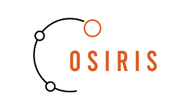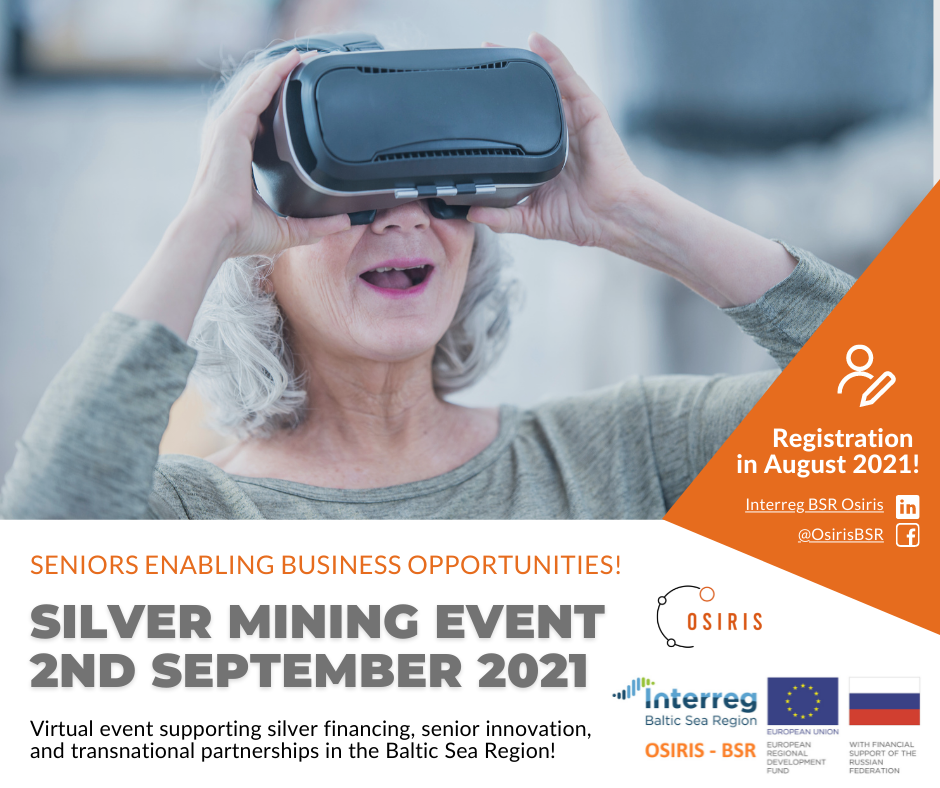
SILVER MINING EVENT & PITCHING FINAL ON SEPTEMBER 2nd, 2021
More than 200 million Europeans are already over the age of 50. There is a great demand for smart living environments, and innovative products and services among this age group. How do we fund new innovations for Silver Economy in the Baltic Sea Region?
The first Silver Mining Virtual Event will be organized on the 2nd of September 2021! This inspiring event is organized under the BSR Interreg Osiris project with the aim of supporting the major innovation areas for the aging population, and boosting transnational Silver Economy partnerships in the Baltic Sea Region.
Silver Mining Event offers you:
• Inspiring keynote speeches on financing opportunities, smart living, and business-academia partnerships related to the needs of the aging population.
• Interesting panel discussion and workshop on modern Silver Economy challenges and solutions
• Unique networking opportunities with transnational Silver Economy actors and financiers through matchmaking and interactive tools
• International exhibition introducing silver actors in Finland, Norway, Russia, Estonia, Lithuania, and Latvia
• Pitching Final Competition: discover the latest silver innovations in the Baltic Sea region!
Register now: https://hopin.com/events/silver-mining-event-2021
Follow us and get involved: LinkedIn, Facebook, TwitterIs your organization interested in exhibiting your products or services in the event?
Please contact your local project partner.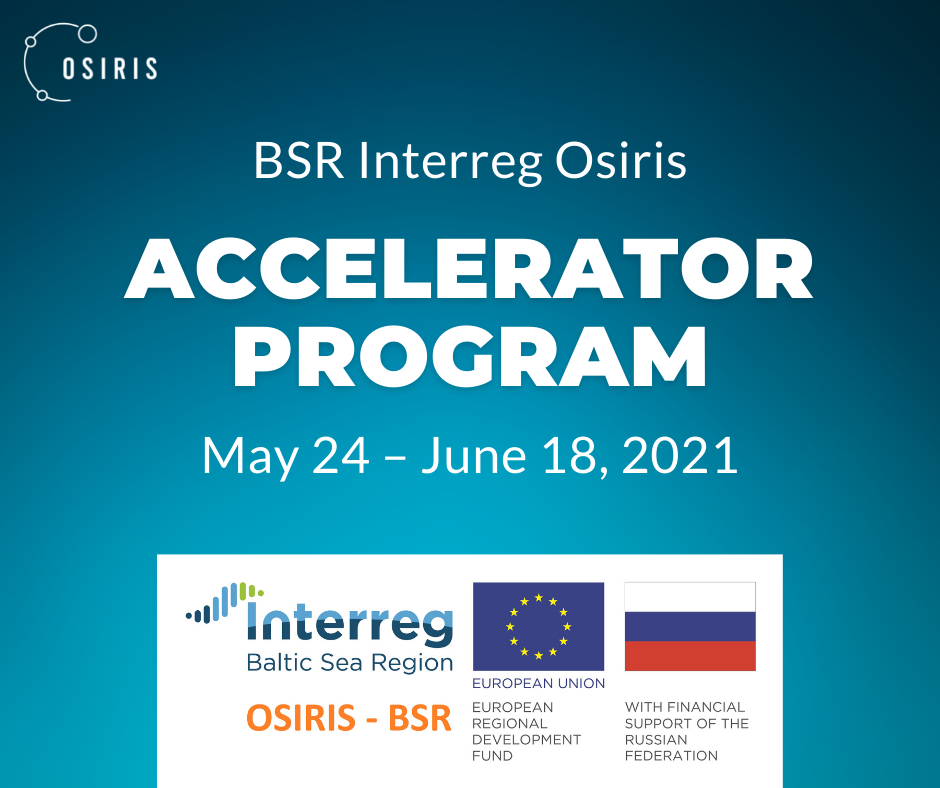
The Accelerator Program: May 24th – June 18th, 2021
The Accelerator Program organized as part of the BSR Interreg Osiris project is a 4-week intense program designed to help accelerate market readiness process of innovative business ideas and projects that tackle various sectors of silver economy. Around 30 business ideas and projects from six countries – Denmark, Estonia, Finland, Latvia, Lithuania and Russia – will take part in this transnational Accelerator Program. It follows the Innovation Program that was run in each of the six countries with the aim to identify business ideas, sharpen their business models and prepare towards internationalization and market readiness acceleration brought about through the Accelerator Program. The Accelerator Program includes workshops, talks, individual and group mentoring sessions, and the final event to highlight the progress achieved throughout the Program. There will be follow-up stages for selected teams, including investment readiness program, Silver Mining Event and the AAL Forum (online on 18-20 October 2021). Read more about this Program here.
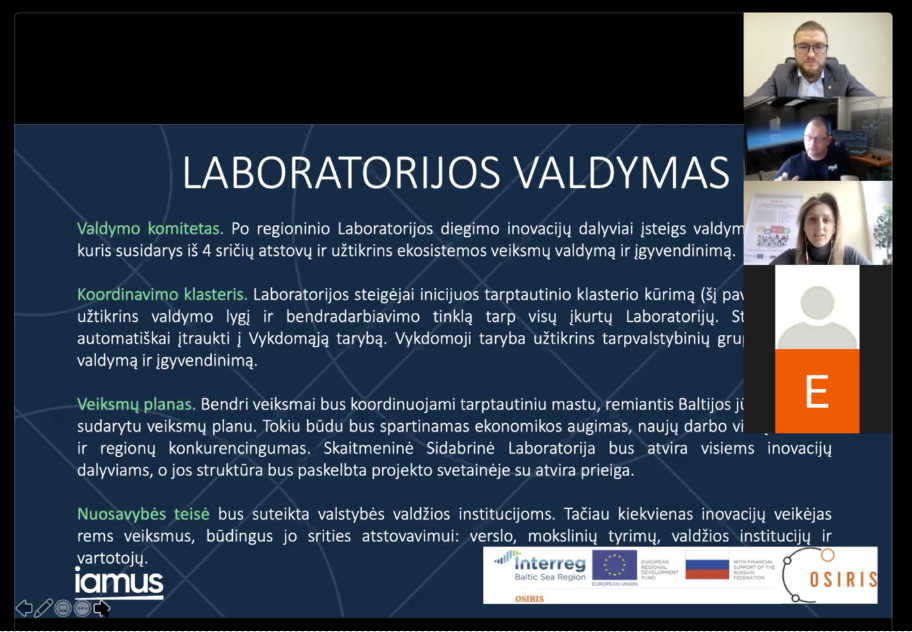
Functionalities of the Regional Smart Silver Lab in Lithuania
The aim of this workshop was to agree upon launching the Smart Silver Lab (SSL) and discuss the roles and functions of each quadruple helix actor in the Silver Economy innovation ecosystem. Variety of external stakeholders (16 in total) from Quadruple Helix sectors (Academia, Policy Makers, Business and Senior citizens) representing a senior citizens association “Bočiai”, Lithuanian Biotechnology Association, Lithuanian Innovation Center (LIC), Agency for Science, Innovation and Technology (MITA), Klaipeda City Municipality, Klaipeda University, Kaunas University of Technology, charity organization “Lithuanian Caritas“ attended the workshop. All participants discussed the roles of each innovation actor in the SSL; their future tasks, what processes they need to implement, and how they will contribute to each task and process. Participants agreed that this ecosystem will help to create more innovations for the aging society, but it is very important to find the right institution in Lithuania which will take ownership of the regional Smart Silver Lab. There were many valuable inputs to the functionality of SSL and very relevant experiences and advice regarding the dynamic future of the SSL network, the activity of its elements, structure, regional direction of smart specialization and its participants, and the importance of cooperation among these participants in creating innovations in the context of Silver Economy.
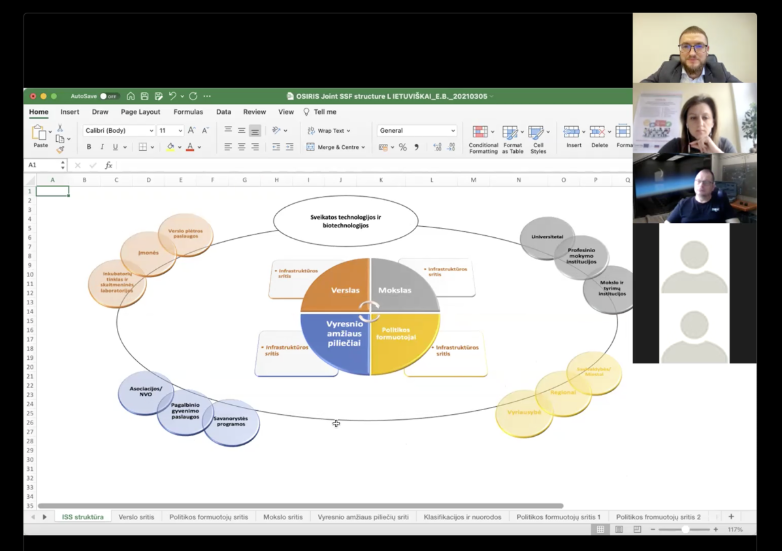
Establishment of Smart Silver Lab in Lithuania
The purpose of this workshop was to discuss the Regional Smart Silver Framework (SSF) validation results with external stakeholders from Quadruple Helix sectors (Academia, Policy Makers, Business and Senior citizens), and to agree on its structure and content suitability for the further development of the regional Smart Silver Lab (SSL) in Lithuania. Variety of external stakeholders (16 in total) from Quadruple Helix sectors representing a senior citizens association “Bočiai”, Lithuanian Biotechnology Association, Lithuanian Innovation Center (LIC), Agency for Science, Innovation and Technology (MITA), Klaipeda City Municipality, Klaipeda University, Kaunas University of Technology, charity organization “Lithuanian Caritas“ attended the workshop. During the workshop, all Quadruple helix actors discussed about Smart Silver Framework (SSF) testing results, the changes to be done, and about additional information that should be included in the structure. All stakeholders agreed that SSF content and structure accuracy is a stable foundation for regional Smart Silver Lab (SSL) establishment, and it will be a valuable system for all innovation actors who are willing to develop a better environment for future opportunities.
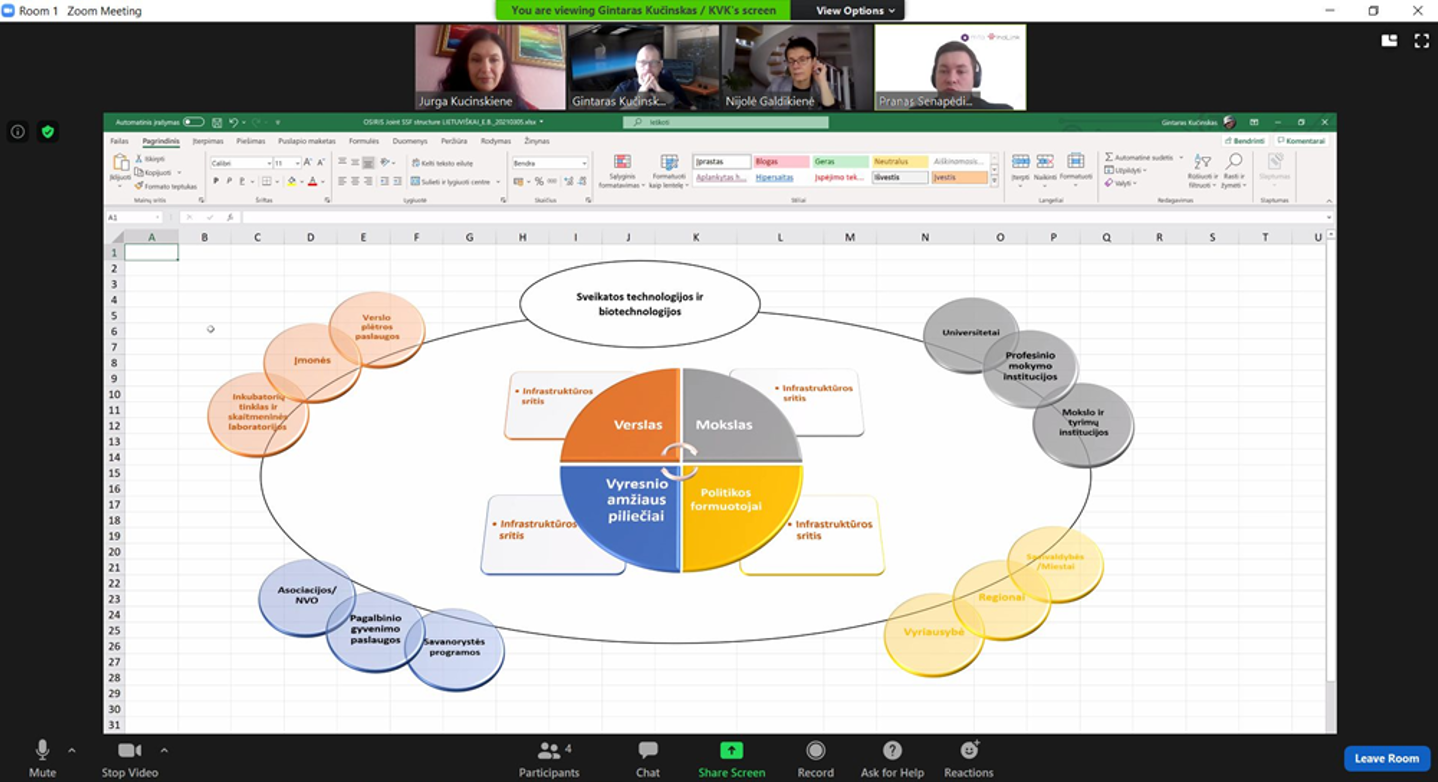
Validation of the Regional Smart Silver Framework in Lithuania
Klaipeda State University of Applied Sciences together with Iamus organized a virtual workshop in Lithuania on the 10th of March 2021. The purpose of this workshop was to present Regional Smart Silver Framework (SSF) to external stakeholders from Quadruple Helix sectors (Academia, Policy Makers, Business and Senior citizens), to test and validate it as a structure for the further development of regional Smart Silver Lab (SSL) in Lithuania. Variety of external stakeholders (16 in total) from Quadruple Helix sectors representing a senior citizens association “Bočiai”, Lithuanian Biotechnology Association, Lithuanian Innovation Center (LIC), Agency for Science, Innovation and Technology (MITA), Klaipeda City Municipality, Klaipeda University, Kaunas University of Technology, charity organization “Lithuanian Caritas“ attended the workshop. During the validation, feedback from interviewers was presented. The participants evaluated the model as a good structure for cooperation, yet it was agreed that it needs to be improved in a small scope. With the general positive note of acquiring new information for cooperation, the SSF was validated.
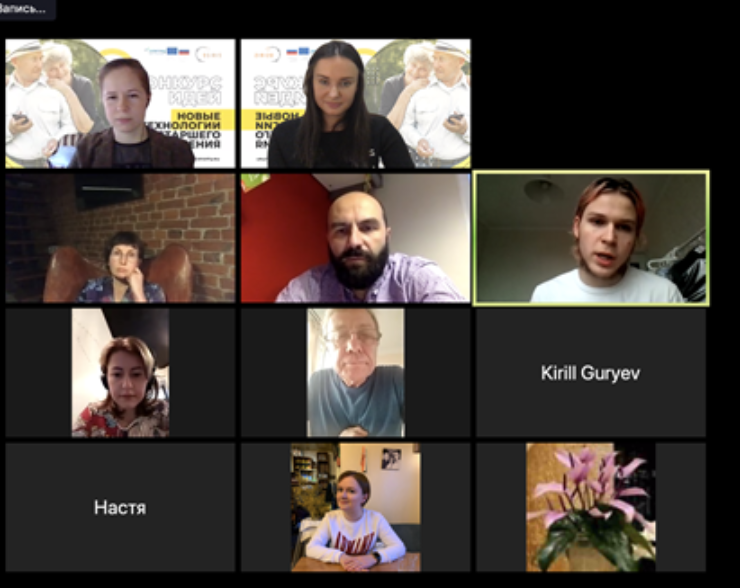
New technologies for the older generation
New technologies for the older generation. Under such slogan Business incubator “Ingria (St.Petersburg, Russia) organised the competition on the new ideas for the older generation. The contest was held online as a part of the information campaign of the new innovation program, taking place in the first half of 2021. The competition was held in order to find new silver projects and boost the development of the silver economy in St.Petersburg and Leningrad area region. At the same time, it was also important to show the huge potential of the silver economy in the named regions. During the event, Business Incubator “Ingria” provided detailed information on the OSIRIS project, demonstrated achieved results and findings, as well as presented the outline of the innovation program to a broad public. The event was attended by representatives of the government, infrastructure support organizations, business and public. Overall, four projects were admitted to participation in the contest. The first one was focusing on building an interactive website, using which the older generation would easily learn how to use messaging apps to communicate with family and friends. The second project drew attention to the social activity of pensioners as an important factor in the quality and duration of life. The goal of the project was to create voluntary municipal councils of elders that will help to involve pensioners into social life. The third project was willing to solve the problem of social isolation of the elderly by creating a communication program for all interested in learning foreign languages. The program would help to find “language buddy” for the senior citizens, so both parties would be learning and practicing foreign languages. The last project was an infrastructure project aiming to build a safe urban environment for the older generation by introducing safe traffic lights. The application in the cell phone developed especially for the seniors could transfer the signal to the traffic lights and indicate when some more time is needed for the senior to cross the street. All projects received relevant feedback and recommendations from the invited experts regarding further development. All projects were also approached after the contest. Based on the results of the presentations, the experts of Business Incubator Ingria discussed the prospects and further steps for development with each project individually.
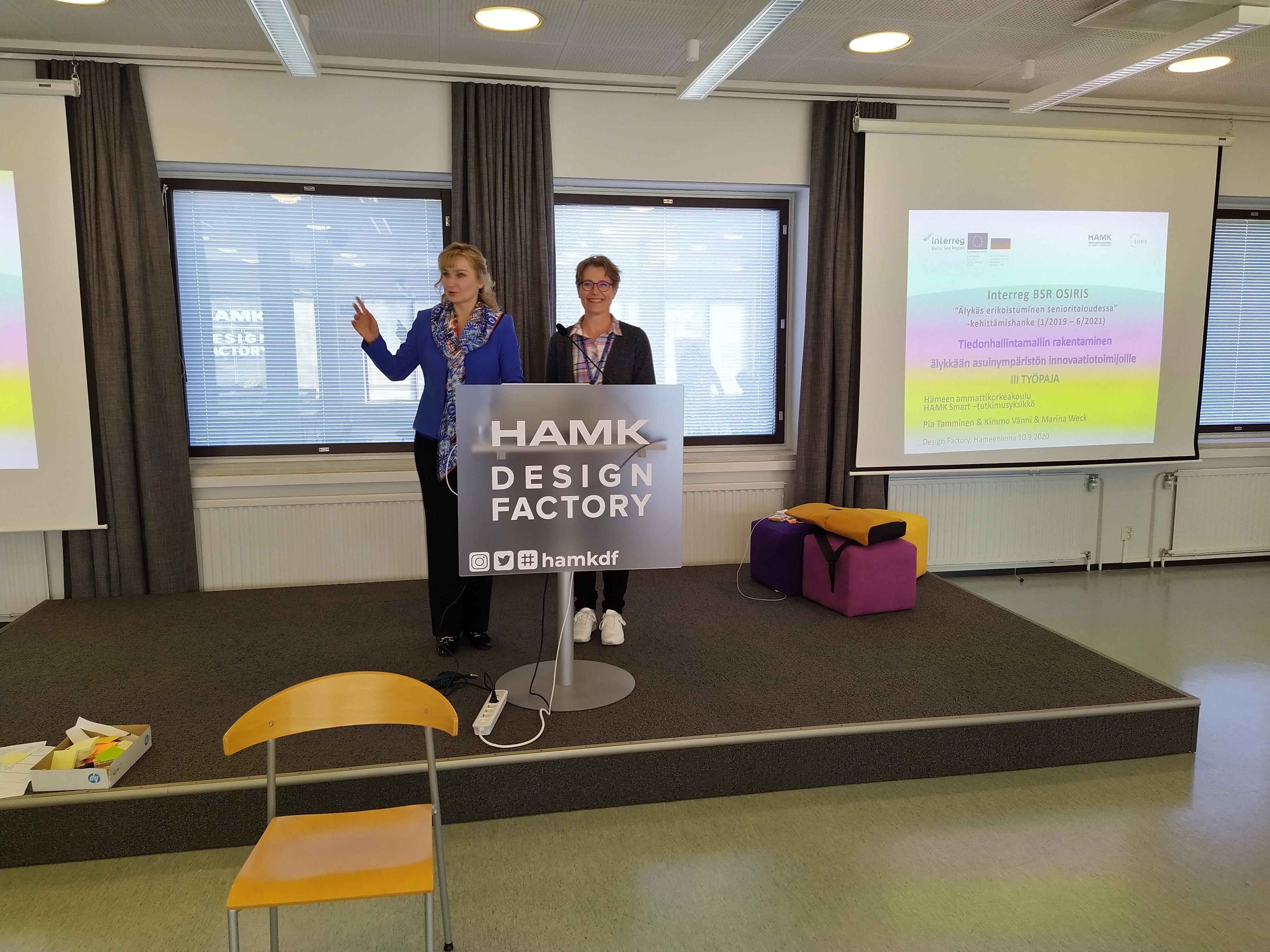
HAMK Workshop III – Regional Meeting on Knowledge Management Mode in Finland
HAMK Workshop III – Regional Meeting on Knowledge Management Mode was held on 10th September 2020. The aim of the workshop was to co-develop the preliminary knowledge management model which may support open collaboration between the innovation actors. The basic terms and definitions of knowledge management and open innovation action were presented and discussed. Also, the results of earlier regional workshops were presented and discussed as a basis for teamwork. The participants of the workshop were asked to categorize 331 terms that were defined in the first workshop into four knowledge management pillars; Knowledge discovery and detection, knowledge capture, knowledge acquisition and knowledge creation & sharing. The workshop gathered nine participants who represented academia, business and elderly people and the related associations. All the participants had roles as regional innovation actors in the smart living environment. Third regional meeting on knowledge management model helped participants to understand the structure of the knowledge management model in the smart living environment and clarified the key concepts and terms. After the workshop, the participants were able to select the most important terms and to categorize them into four pillars.
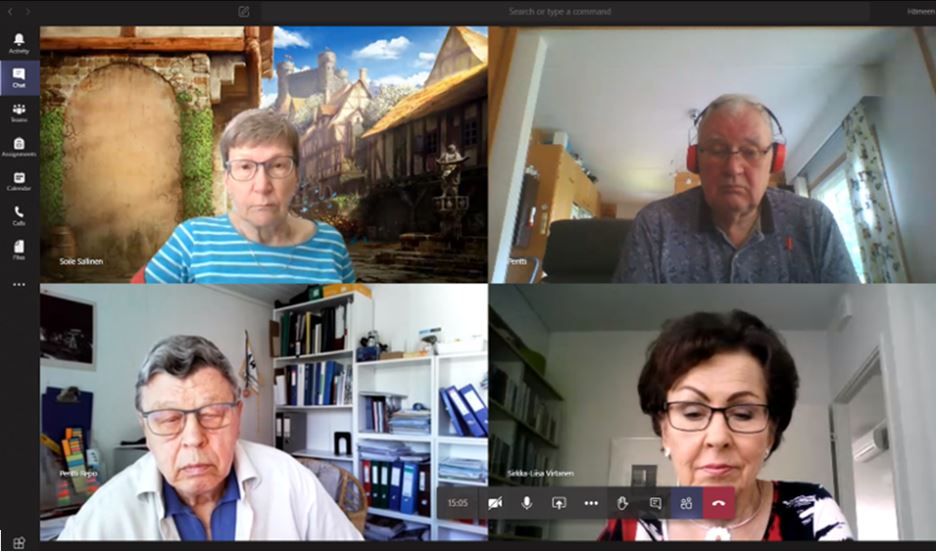
Regional Meeting on Knowledge Management Model in Finland
HAMK organized online Regional Meeting on Knowledge Management Model on June 8, 2020. The aim of the online meeting was to discuss the following four main questions and to find answers. Who are the actors in the age-friendly living environment, and how are they using data? What kind of knowledge management may advance an age-friendly living environment? How the actors’ knowhow, needs and competencies can be shared openly and further developed? Is housing service in future? Is housing service in future? The online meeting gathered sixteen people who had diverse background and experience. About half of them represented elderly people and related associations. Another half represented regional authorities, academia and companies. All the participants represented organizations that were key innovation actors in the smart living environment.
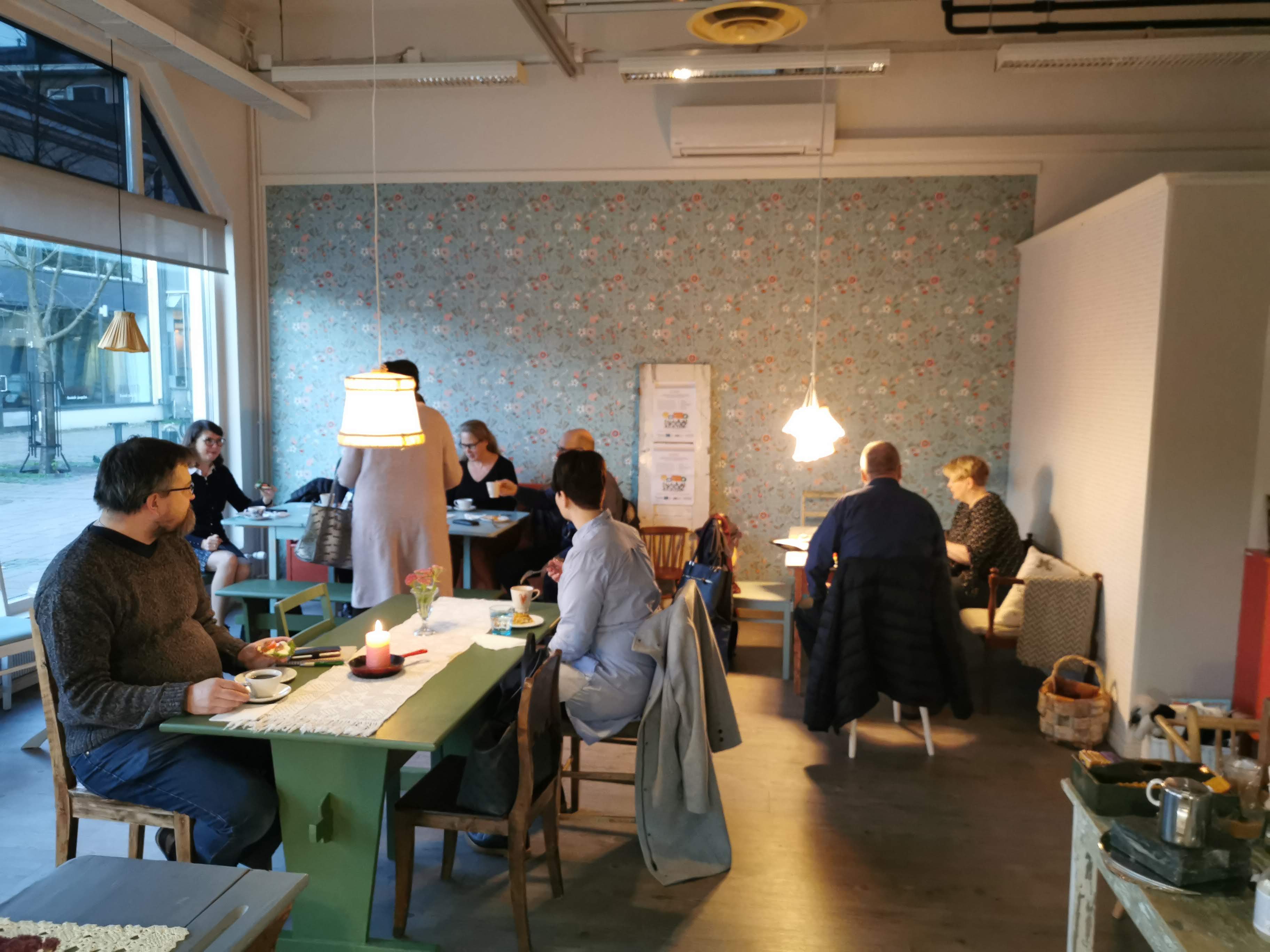
Information session in Finland
Information session regarding innovation program took place on October 16 of 2020in Finland. 15 participants were gathered for the event at the Café Mokkasydän in Riihimäki, most from whom were entrepreneurs from Riihimäki region. Reima Ojanen from RTOY said the welcome words and told about the RTOY services available for enterprises. Tiina Siika from Riihimäki Business Association described the current situation in the business sector. It is obvious that Covid-19 pandemic has made a major negative impact on the enterprises. E.g. the travel and event businesses are suffering badly from the situation. Luckily, there is funding support available for enterprises. Leena Lemola from RTOY informed about BSR Interreg Osiris project generally and the becoming program(WP4)especially. She also told that the seniors are an important and growing customer segment that should be taken into consideration when developing new business. It is noticed for example that the seniors are one of the fastest-growing customer segments in eCommerce. They are buying particularly entertainment services, like concert and travel tickets. In the scarcely populated areas, the senior customers are buying also other services and products, and the average sum of their shopping considerably higher when compared to younger customers. The attendants pondered in the workshop how to notice senior customers better in their business development. As a conclusion, it was mentioned that e.g. the marketing, websites and the premises should be accessible and new services should be developed for this group.
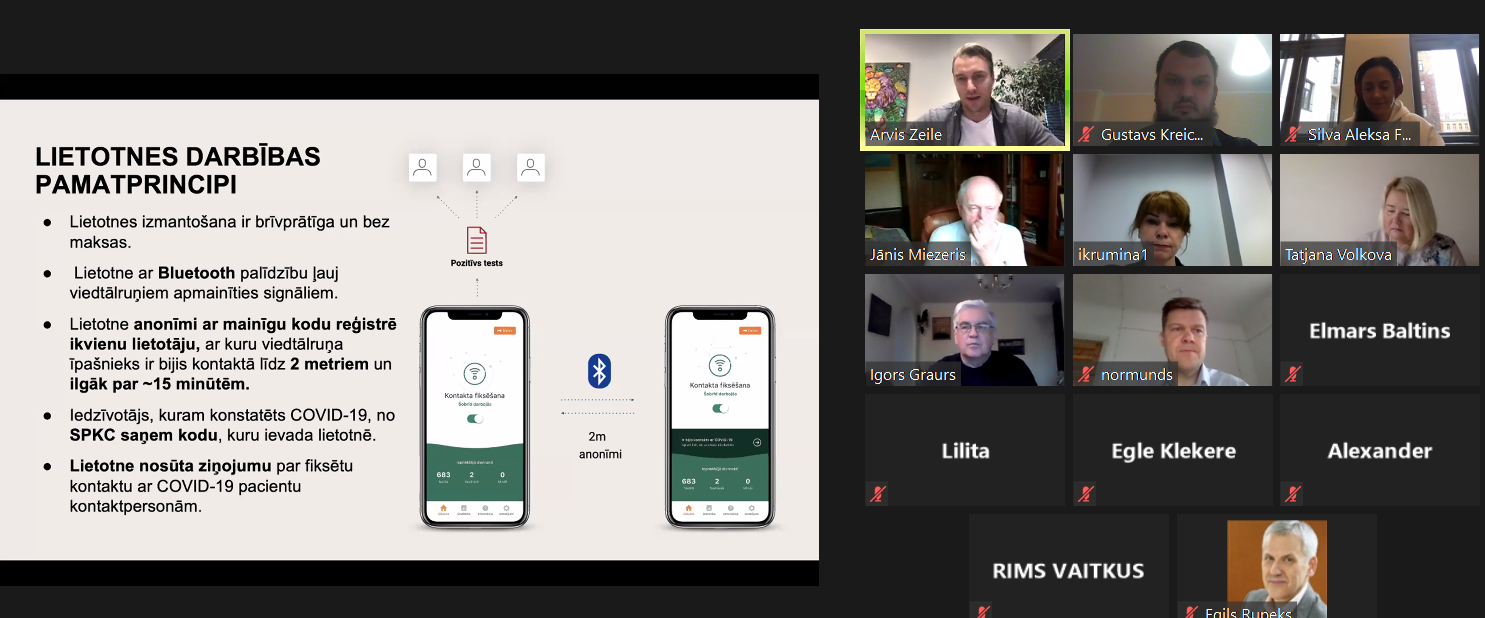
The method of design thinking to expand the usage of “Stop Covid” app among the senior population.
Last Week on October 29 Team of Riga Technical University as part of the Osiris Project organized workshop “The method of design thinking to expand the usage of “Stop Covid” app among the senior population.” The app itself was a non-commercial initiative, that was made possible by the involvement of state agencies, universities, private tech companies and many other actors, driven by the sole goal limiting the spread of COVID-19 by enabling smartphone-based contact tracing in Latvia. As the user base is key to the success of such platforms, it is essential to expand the user base of the app in the most vulnerable groups. The workshop took place via Zoom and involved representatives of Riga Technical University, Latvian Mobile Telephone, media agency Deep White and the developer MakIT. After presentations regarding the functionality, communication activities and design thinking, structured interviews were held with selected seniors to identify to challenges of effective communication and increasing the awareness of the app, while overcoming mistrust and disinformation, that is actively spreading following the second wave of COVID-19 in Europe. Both the workshop and the “Stop COVID” initiative is are good examples of the advantages of quadruple helix approach to problem-solving on a bigger scale.
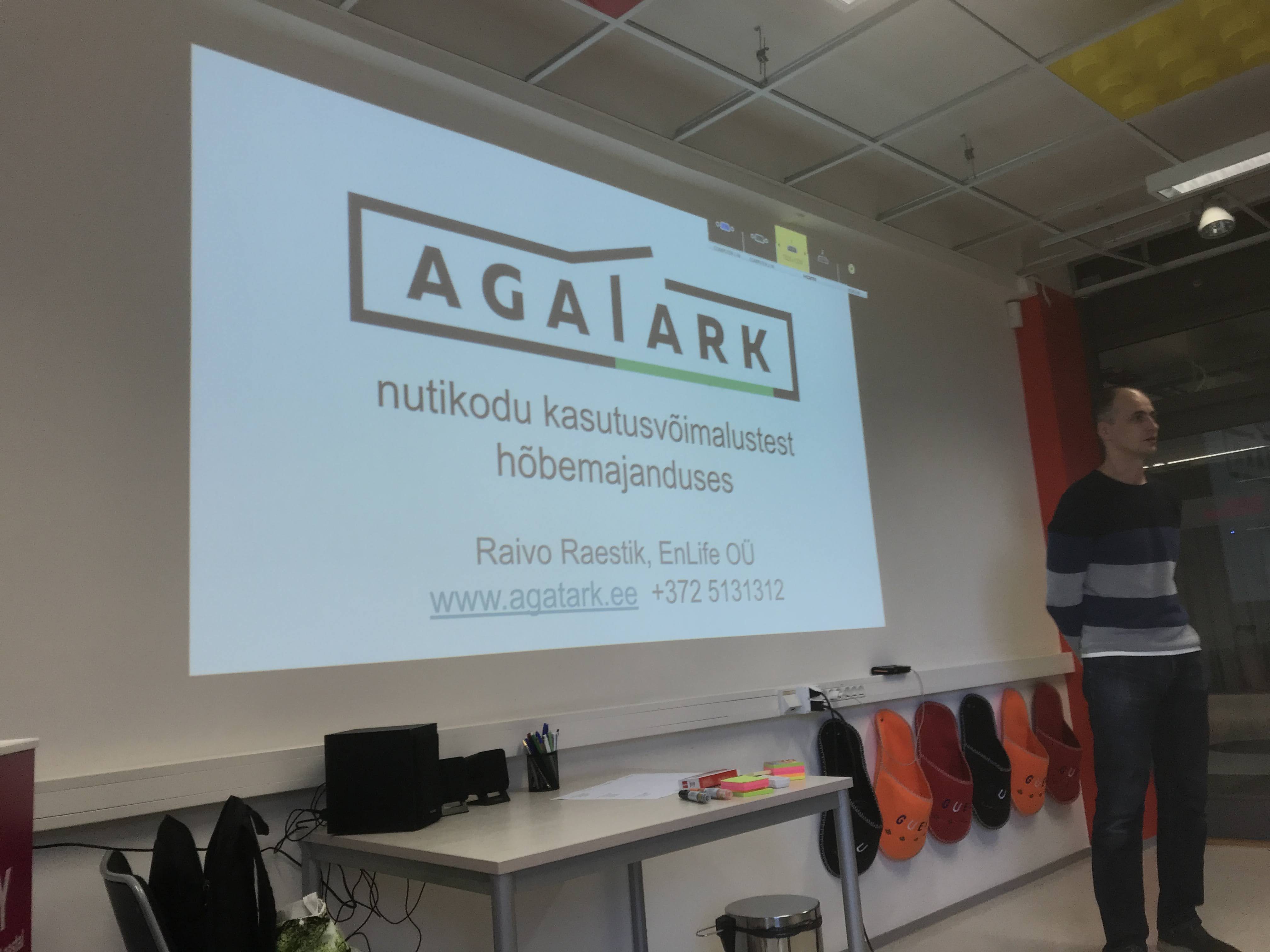
Work package 5.1. finding smart silver financing mechanisms workshop in Tallinn
The event took place on 10.09.2020 and lasted fairly around two hours. 11 participants - 3 virtually/online and 8 on a place at Tallinn University of Technology Innovation and business centre Mektory. We had two very interesting guests who introduced their business story- CareMate OÜ and Enlife OÜ. They talked about their experience and how they find funding and financing for their company. Purpose of the workshop was to find and validate a framework for smart silver financing mechanisms in Estonia. Through this workshop and 6 interviews that have been conducted with different Quadruple Helix Actors, we are positive that we will find new ways to funding and financing for our Digital Silver Hub which is the main outcome from this work package.
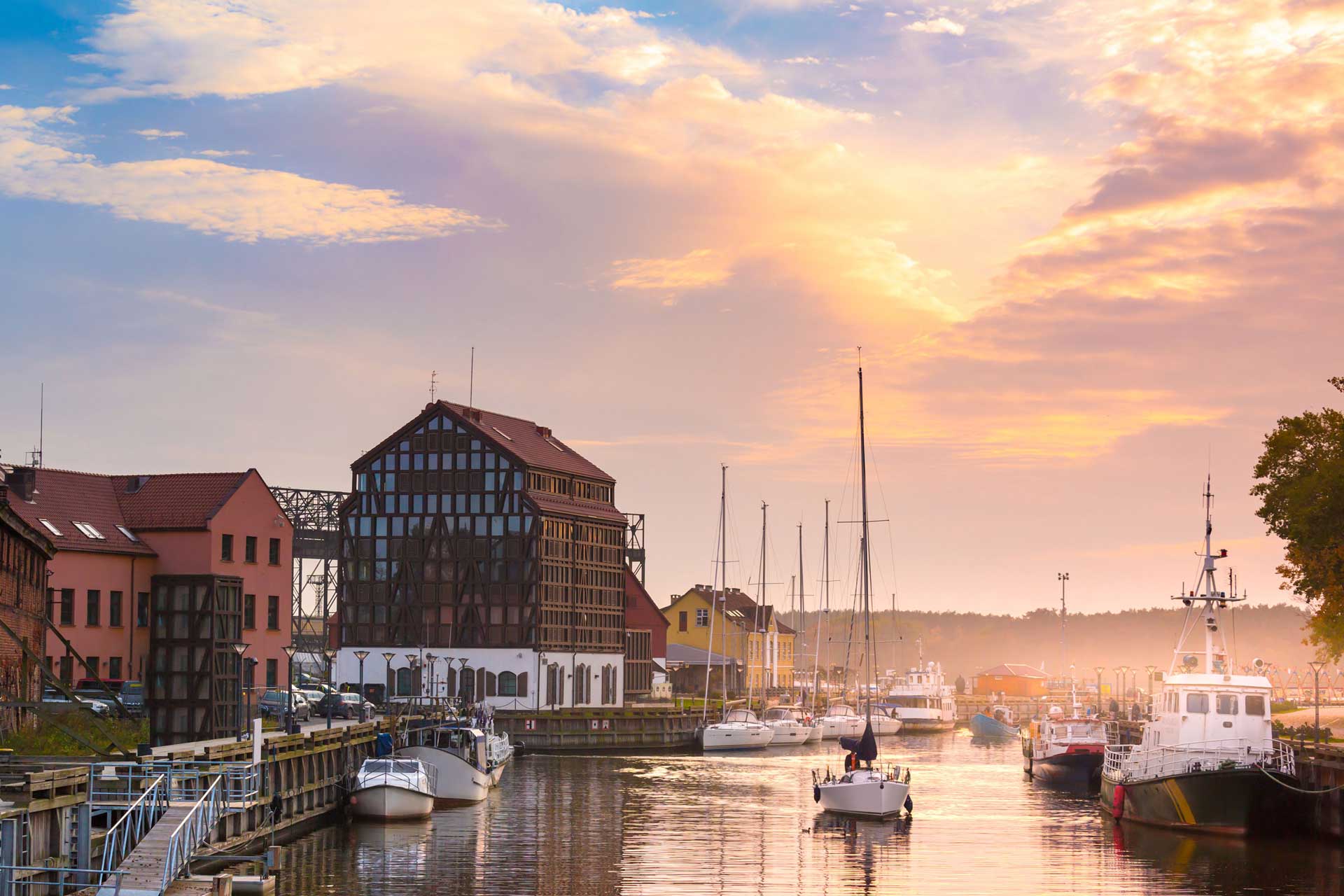
1st Innovation Camp, hosted by Klaipeda State University of Applied Sciences
Moving forward with Interreg BSR 2014-2020 project “OSIRIS” activities aiming to realize open innovation toolkit 1st Innovation Camp, hosted by Klaipeda State University of Applied Sciences was held in Klaipėda, Lithuania, on 16-17 September 2020. Caused by 2020 pandemic situation it was organized in unlike regular format and was innovative with an entirely virtual participation process. Nevertheless, participants, representing triple helix actors (from government, research and scientific institutions, companies, were interactively engaged in the 2 days camp session. Existing in practice innovation tools were presented by Lithuanian innovation centre (Dr. Ingrida Tinfavičienė) and Baltic Maritime Digital Innovation Hub (Innovation director Ignas Aničas). During the panel discussions, participants shared knowledge, critical observations and insights about presented existing open innovation tools and methodologies. 2 more Innovation Camps are going to be conducted in order to select final open innovation tools, establish testing scenarios and concluding with validation of selected final open innovation toolkit. #OSIRISInterregBSR #Silvereconomy #InterregBSR #Smartspecialization #Innovationcamp #KVK
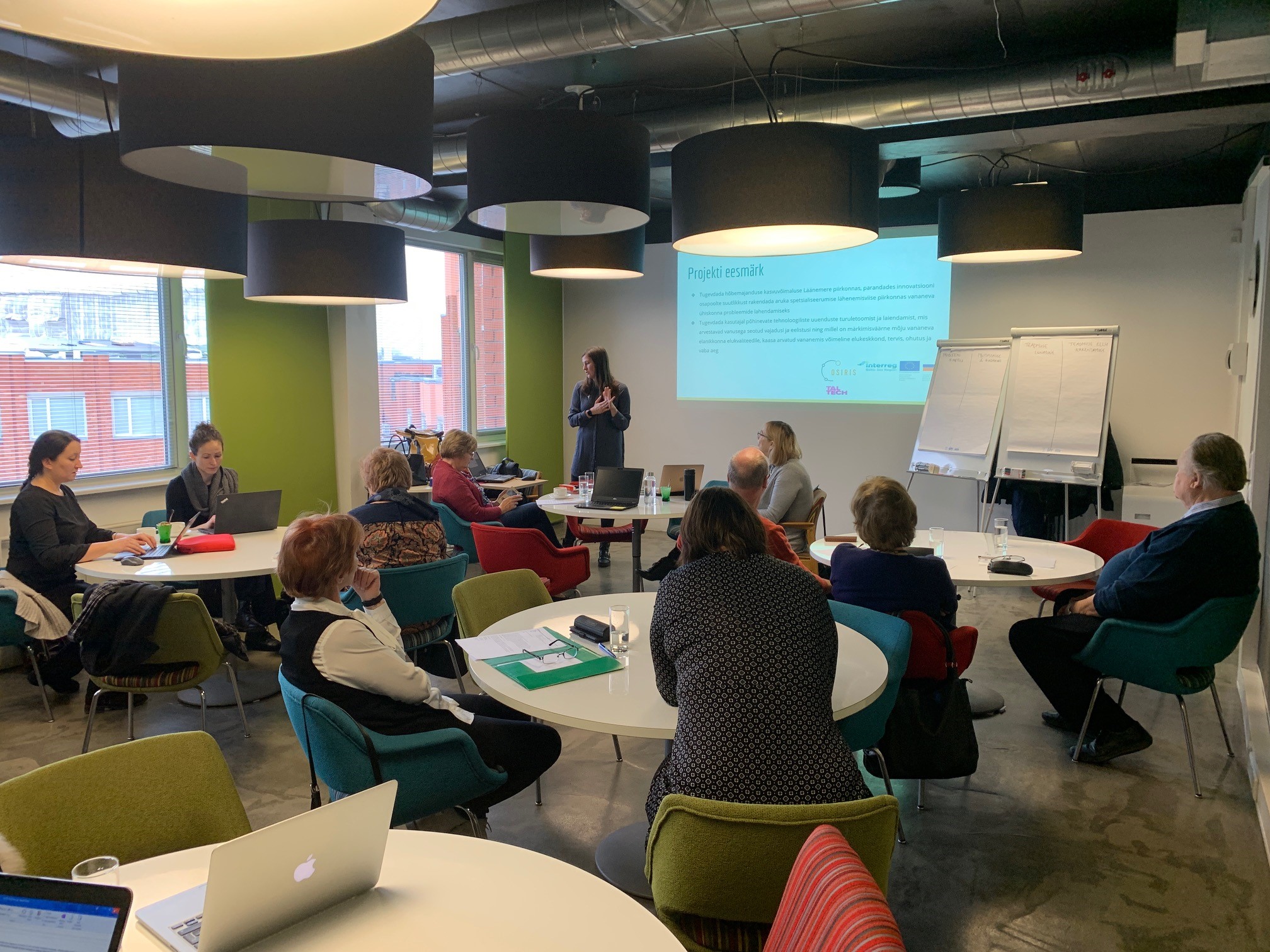
Second workshop on Knowledge Management model making Tallinn, Estonia
Taltech (PP8) organized the Second workshop on Knowledge Management model making in Tallinn, Estonia on 17.02.2020 and it lasted fairly around 3 hours with one coffee/lunch break in between. Aim of this workshop was to start analyzing problems found from the first regional workshop to understand how Knowledge is collected (detected), how knowledge is organized and assessed, how it is created and transformed. We mainly focused on 4 different problems relevant to Estonian RIS3 priorities. In this workshop, we had 18 participants and we were working in one group where two moderators were organizing the workshop. They were collecting expert ideas and added information to the big whiteboard made of big papers. Having different academics, experts who are working with local municipalities and also for government and representatives from the senior population (member from Estonian Pensioners’ association) gave us very wide results and discussion on the problems. The workshop focused mainly on the problems facing how knowledge is captured, organised, created and transformed in Estonia. Also which quardo-helix actor(s) is (are) responsible for each question what raised up through workshop. The workshop was smooth and had a very active discussion session.
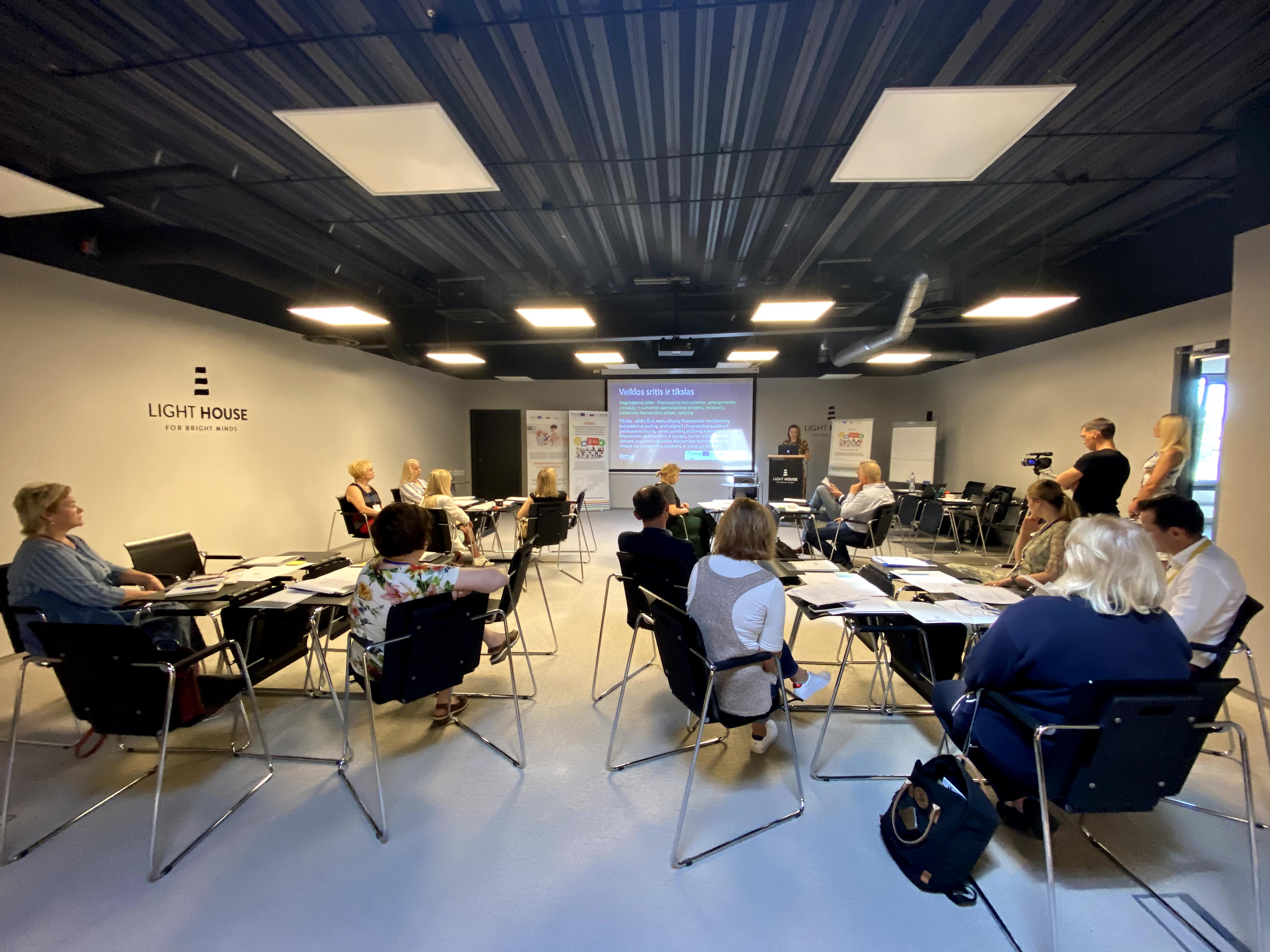
Workshop on “Developing the silver financing mechanism”
JSC „IAMUS innovations“ is implementing Work Package 5, GA 5.1 - DEVELOPING THE SILVER FINANCING MECHANISM that aims to run a complex analysis over the available fund mechanisms, over the shortages between supply and demand of finance over the matching between business needs and existing financial instruments and over the gaps that need to be filled to improve market commercialization of silver innovative products or services. To achieve the goal JSC „IAMUS innovations“ organized the workshop where difficulties and shortages were identified, and improvement actions were proposed during 6 hours meeting in Klaipeda, Lithuania on 17th of July 2020. The workshop was attended by representatives from different sectors: private (business angels, companies which are applying for the funding, closely working with innovations, providing financing, preparing applications for the funding, credit unions, banks), public institutions (Ministry of economy and innovation, universities, innovation agencies, digital innovation institute, municipality), non-profit organisations (social support centre, public health centre, a support centre for the elder people).

4th co-creational workshop on June 19th 2020
On June 19th 2020 team of experts from Klaipėda State College completed and validated the Knowledge Management Model in the Health Technology and Biotechnology Open Innovation Ecosystem in the 4th co-creational workshop with the participation of government, science, business and society representatives. Since November 2019, by taking part in a total of 4 co-creational workshops, participants helped experts to develop a universal tool to manage the innovation cycle in the open innovation ecosystem. The purpose of the knowledge management model is to manage the whole cycle of the innovation process at national level, involving all regions, central and local authorities, business and science organizations (state-organization-individual), open to all, transforming knowledge into products with high growth potential in the market. The model responds to the smart specialization of health technologies and biotechnologies, but can be applied more universally and more widely. The event was broadcast on the Facebook account of Klaipeda State College. The knowledge management model is an intermediate stage and result of the implementation of the project “Supporting Smart Specialization Approach in Silver Economy for Increasing Regional Innovation Capacity and Sustainable Growth (OSIRIS)” (OSIRIS, No. # R080) funded by the Interreg Baltic Sea Program 2014-2020, in which Klaipėda State the college participates as a partner. More about the project - on the project website.
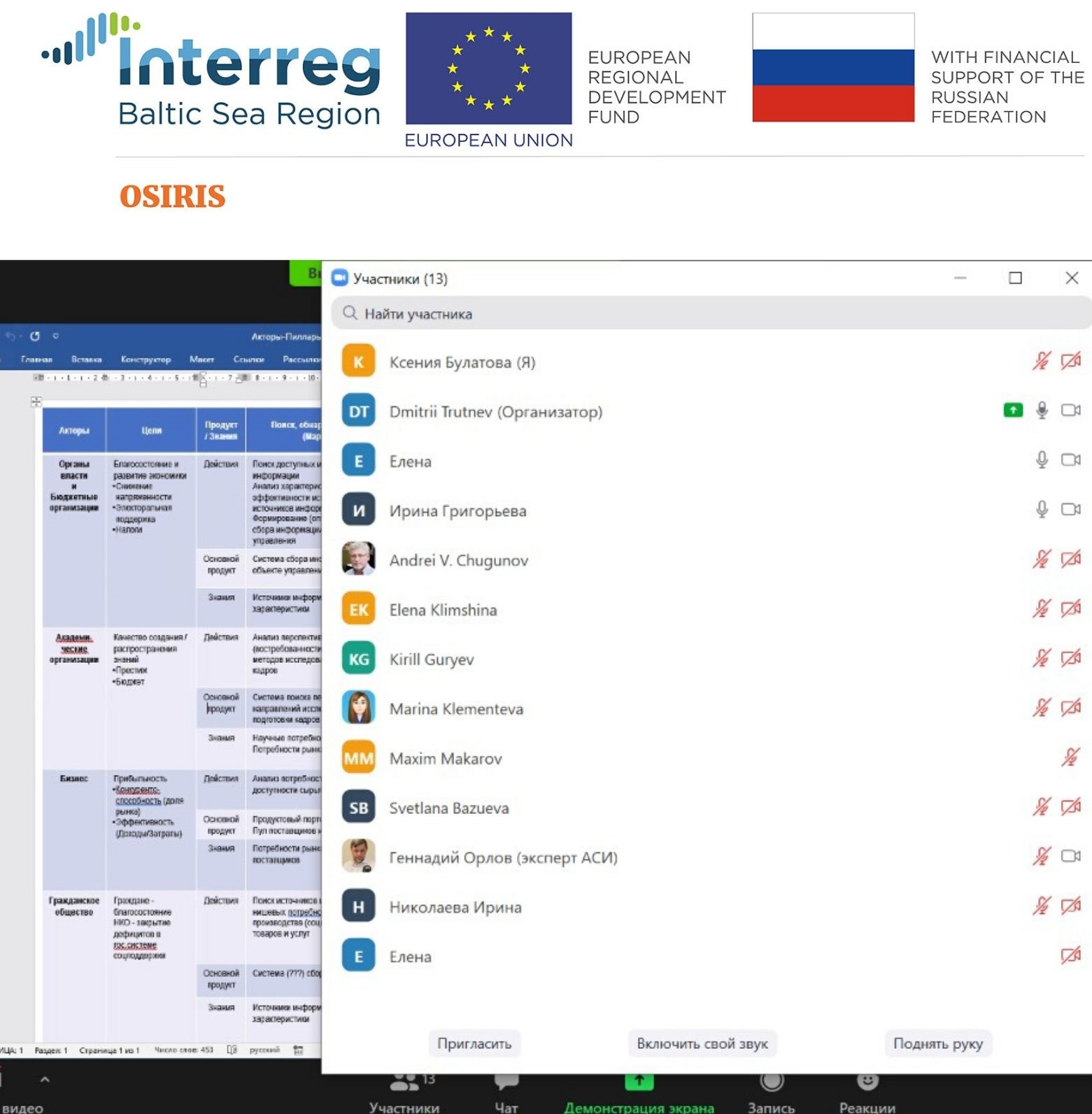
A SERIES OF CO-CREATIONAL WORKSHOPS IN MAY-JULY 2020
In June OSIRIS team from ITMO University finalized and validated the Knowledge Management Model in the ICT and Well-being Open Innovation Ecosystem in St. Petersburg on the 3rd of July . Due to the COVID-19 pandemic, the events took place virtually via Zoom and Google Docs platforms. The aim of this series of the workshops was to jointly design an effective tool to manage knowledge flows and main actors of the innovation ecosystem. As a future practical outcome, we aim to succeed in creating products and services for the older generation. The agenda of the workshops was built taking into account both the practical value of the Knowledge Management Model in creating the products and services for the silver aged generation and critically reflection of the previously developed Knowledge Map. As in previous events, the round table was held in the format of a brainstorm with the participation researches and sociologists, experts of innovative infrastructure and business, whose expertise was relevant for the project and helped to gain knowledge about older consumer`s needs and capacities to meet them limited by the priorities mentioned in the regional strategic documents: ICT and wellbeing. The Knowledge Management Model is an intermediate stage and one of the outcomes of the implementation of the project “Supporting Smart Specialization Approach in Silver Economy for Increasing Regional Innovation Capacity and Sustainable Growth (OSIRIS)” (OSIRIS, No. # R080) funded by the Interreg Baltic Sea Program 2014-2020, in which ITMO University participates as a partner. More about the project - on the project website.
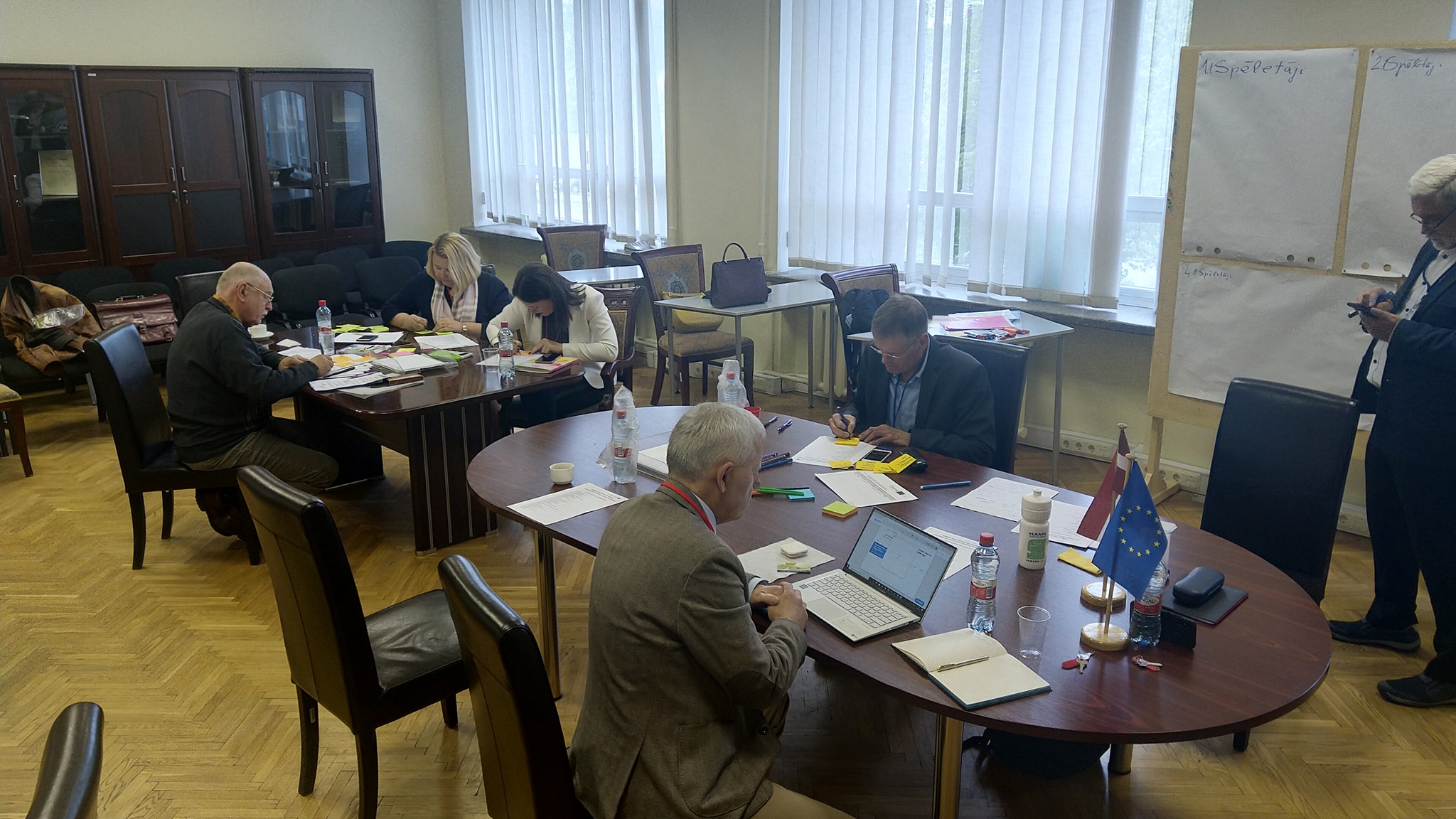
Expert meeting on May 21, 2020, at Riga Technical University
Due to the restrictions caused by Covid-19, the meeting on May 21 in Riga, Latvia took place both - in person, observing the rules of assembly, and remotely - on the Zoom platform. The following questions were discussed with the participation of 20 participants:
- Is the Knowledge management Model (KMM) project outline based on the Knowledge Map;
- Are all barriers to the flow of information within the KMM removed?
- How do the members of the Expert Panel understand the KMM in order to promote the wellbeing of the Silver Economy participants?
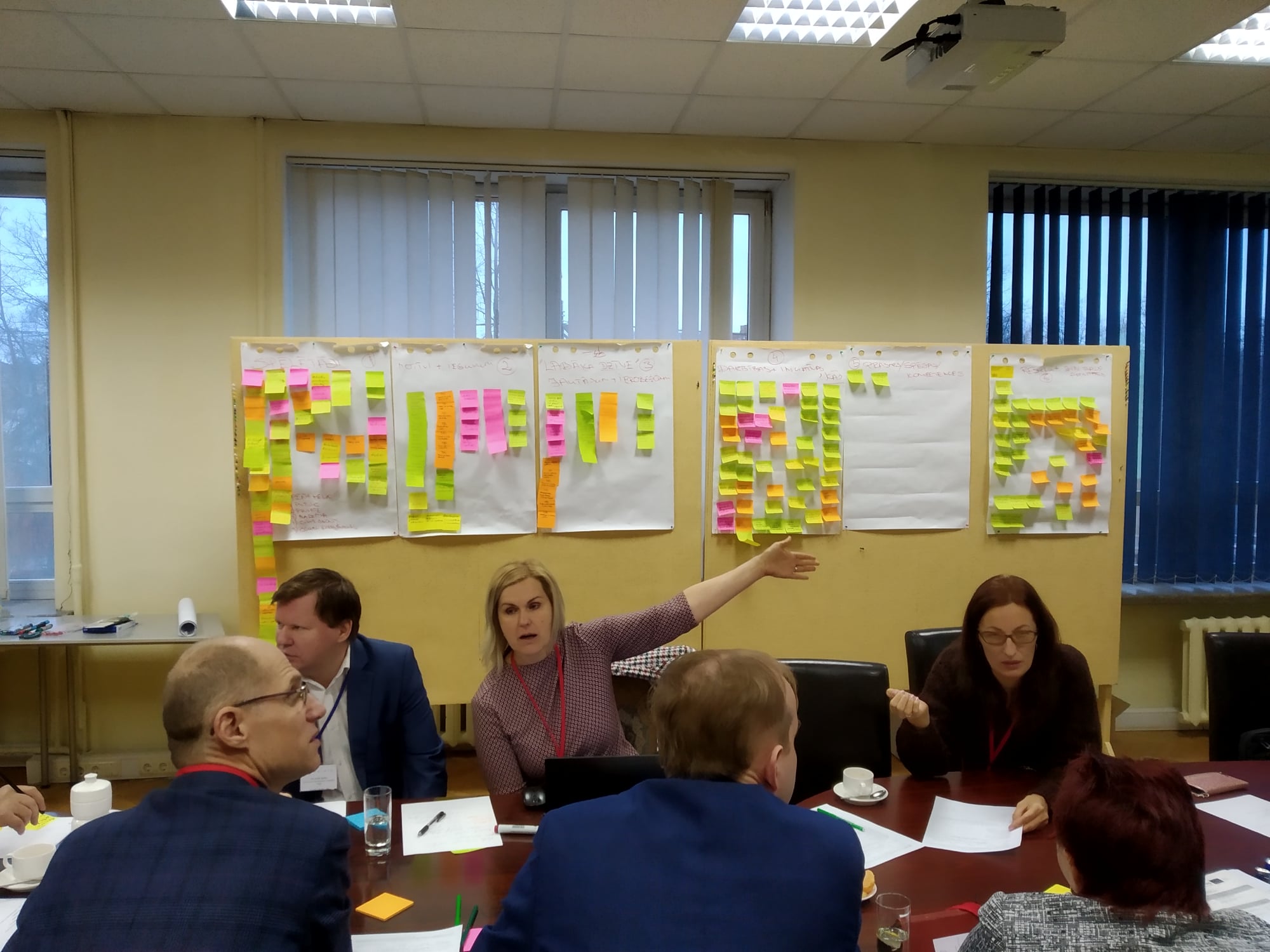
Second seminar on supporting the smart specialization on January 24, 2020 at RTU
On January 24, 2020, the second seminar on supporting the smart specialization approach in the silver economy to increase regional innovation capacity and sustainable growth took place at Riga Technical University, Riga, Latvia. The goal of this project phase was to develop the mapping of Silver Knowledge Management Process on a national scale. Continuing the first session, a detailed and structured cognitive map was created, the map includes all factors, responsible bodies, decision-makers, organizations and processes that affect the development of the silver economy in Latvia.
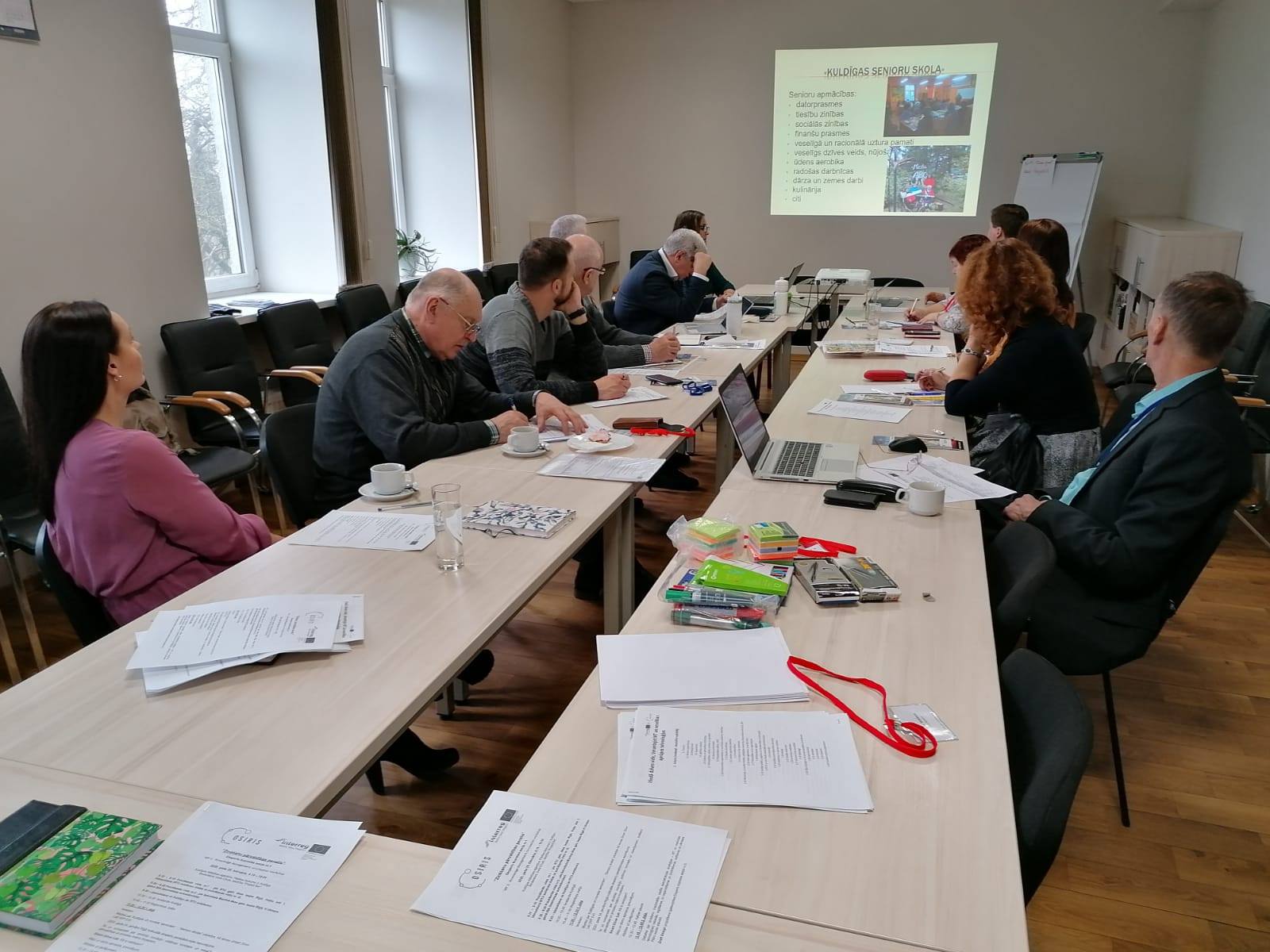
Expert co-creation session in Kuldiga on February 25, 2020
On February 25, 2020, 14 experts from all over Latvia gathered in the co-creation session of experts in Kuldiga, Latvia. The importance of the project in both - the national and European contexts was emphasised in the session. During the session, the experts were introduced to the successful example of "Kuldiga Senior School", whose operation serves as one of the leads in the development of the "Smart Silver Lab" concept.
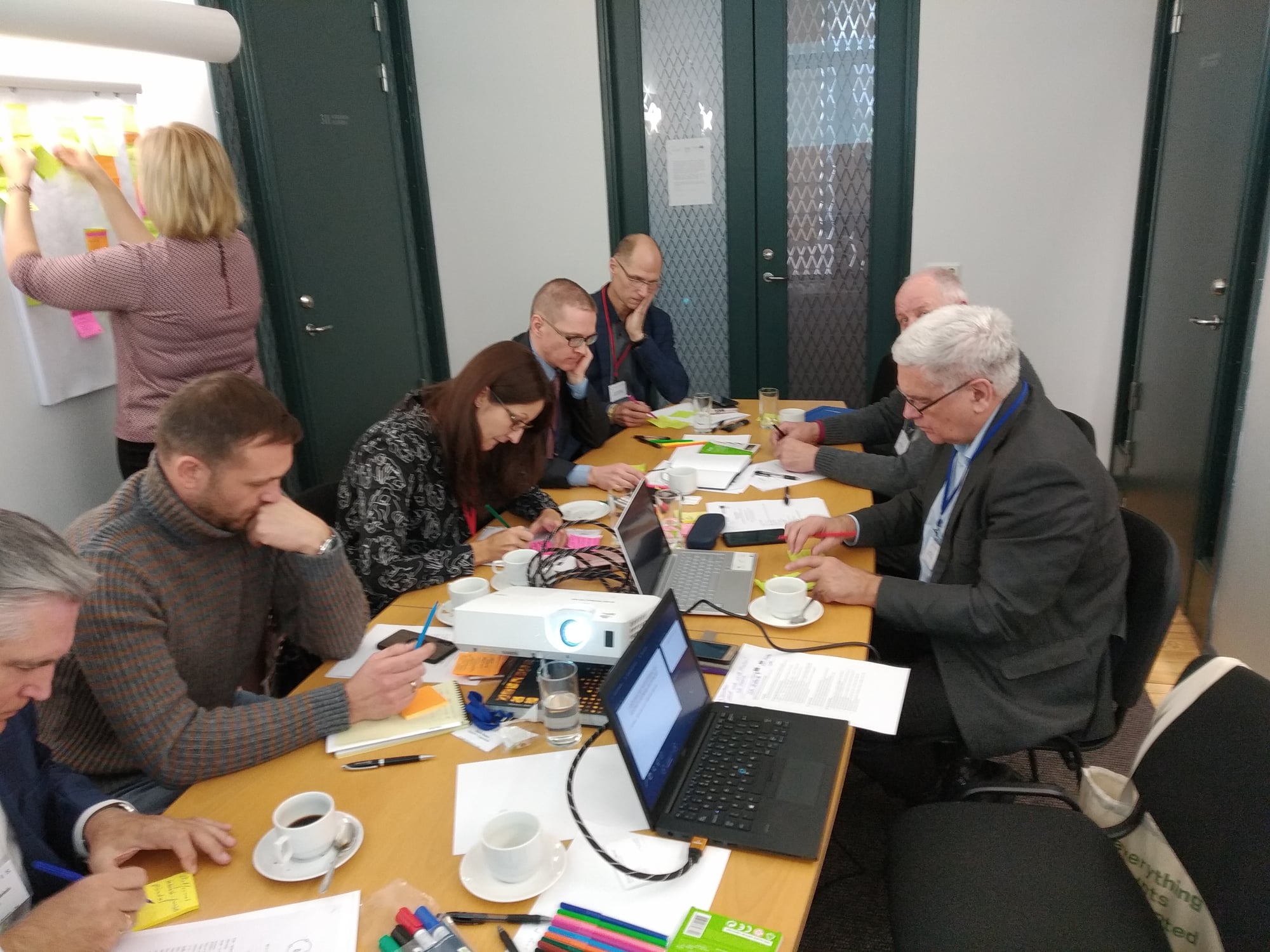
Expert panel session “Knowledge Mapping” on On December 10, 2019
On December 10, 2019, in Latvia at Riga Technical University, starting the work on the project "OSIRIS", an expert panel session "Knowledge Mapping" took place. In the introductory session, meeting with 16 experts and project coordinators, the aim was to identify and deepen the set of activities needed to promote the development of the silver economy in Latvia. The participants discussed the method of developing and analyzing strategic opportunities in the context of the SODA OSIRIS BSR project, developed a detailed and in-depth mapping of ideas, as well as the strategy "Smart Silver Laboratory", which discusses the implementation of the silver economy in an intergenerational context.
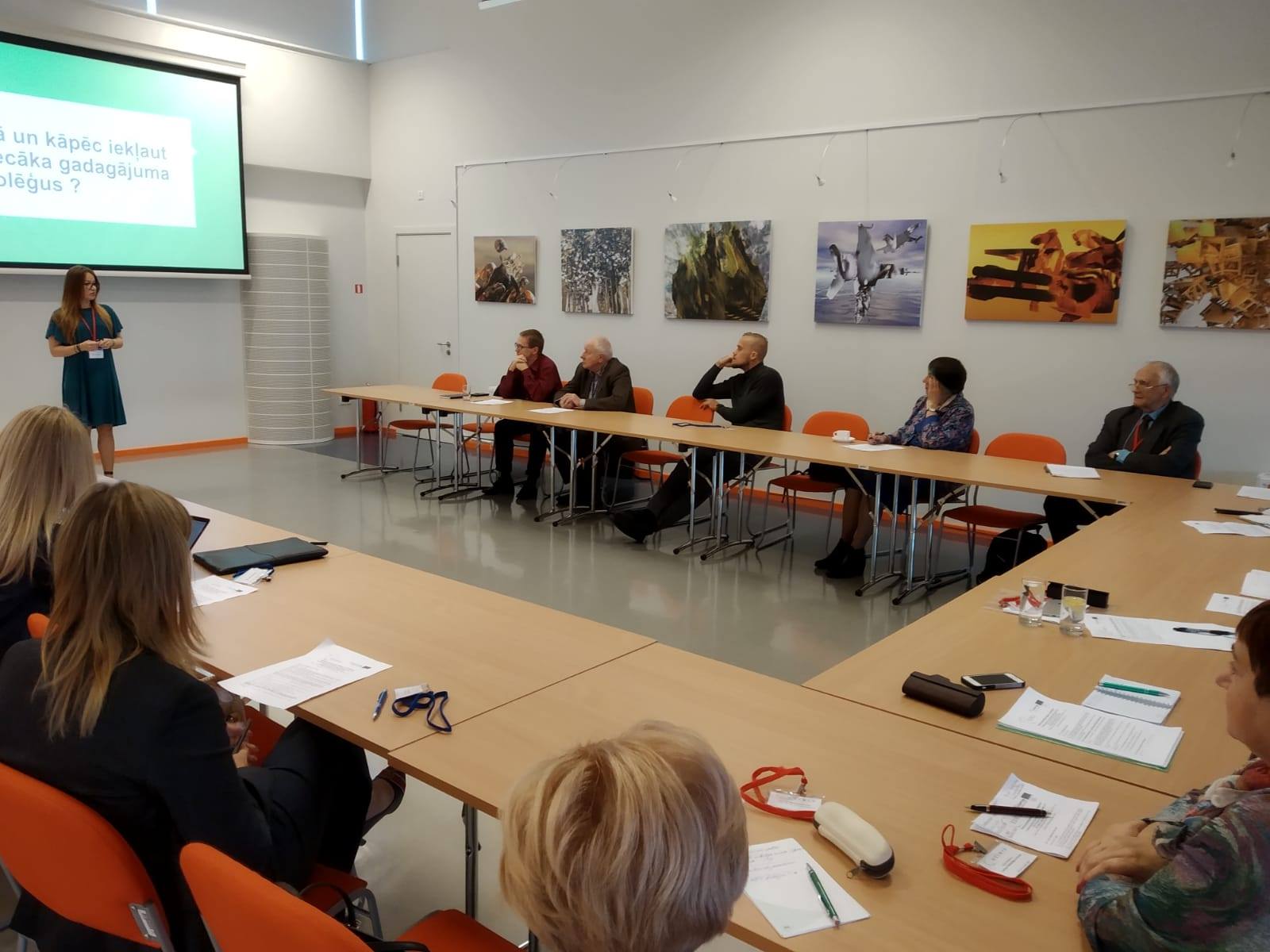
PXL Workshop “Opportunities and problems of senior economics” on 19 September at RTU
- by reducing general poverty in the country, it is possible to increase the activity of seniors and the desire to enter the labour market, as well as to increase of employment opportunities;
- tax policy and legislation developed by the state must have a positive effect on the employer-employee relationship;
- it is necessary to fully ensure the elimination of discrimination against seniors both in terms of job offers and in terms of financial security;
- it is necessary to expand understanding about the importance of knowledge transfer from seniors to the following generations;
- both at the state level and employers need to provide seniors with additional benefits (transport, etc.) and job security
- it is necessary to promote the competitiveness of seniors in the labour market by providing further educational opportunities for seniors.
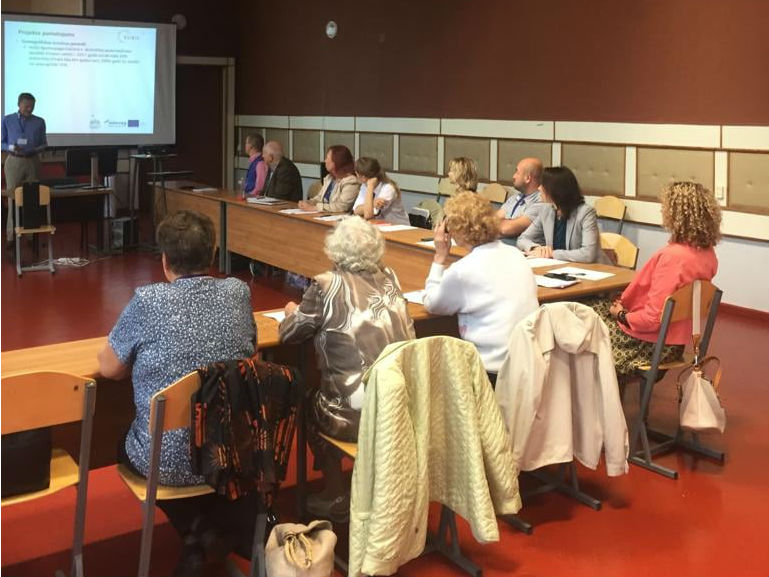
Focus group meetings in Riga and Daugavpils on 13th and 15th of August
On 13 August 2019 and 15 August 2019 expert focus groups meetings were held in Latvia in Daugavpils and Riga, respectively, to focus on the importance of silver economies for the future of global economic development. During these meetings, both local and global issues were outlined. For example, during the session at Daugavpils, special attention was drawn to the Latgale region and its particular challenges at hand. During the second seminar, specialists looked at support for the development of the silver economy at Riga. The most important overarching question: does the implementation of Latvia's National Development Priorities take into account the growing importance of the silver economy? A particular focus was placed on the fields of biomedicine, medical and technologies as well as information technologies. Osiris project aims to answer these questions and will focus on development on the silver economy as a common value in the 21st century!
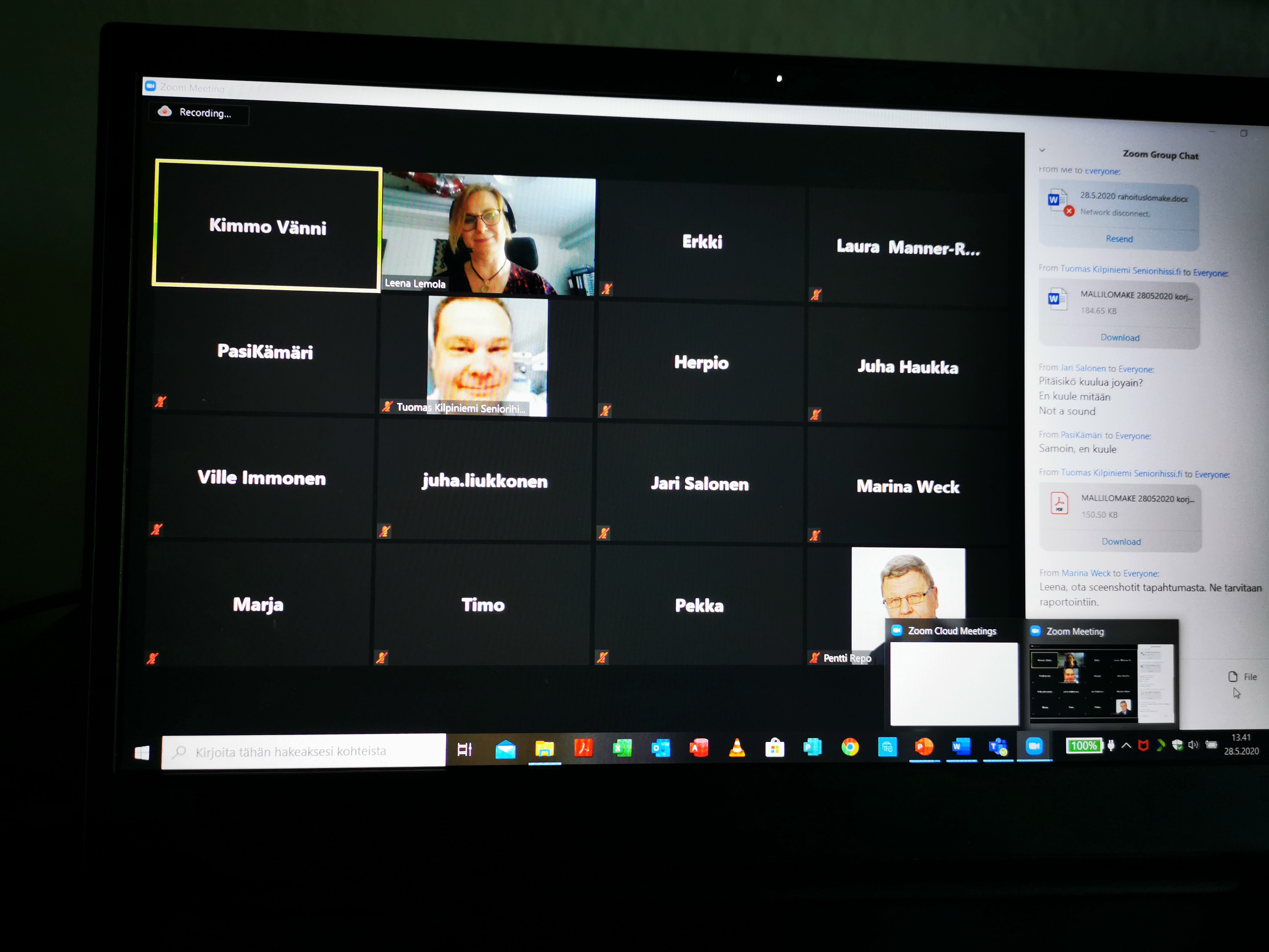
ONLINE-WORKSHOP IN FINLAND: SILVER FINANCE MECHANISM
The workshop organized by Riihimäki Business Development Co. took place on the 28th of May 2020 as an online webinar. There were a total of 16 participants in the event discussing the present and future financing and funding challenges and possibilities. Most of the attendants were representing either financers or business development organizations but there were also entrepreneurs and representatives of different senior organizations and educational institutions present as well. In his presentation, the keynote speaker CEO Juha Haukka from Hämeen Yrittäjätdescribedthe present economic situation of the enterprises in Häme region. Naturally, there was a lot of concern about existing Covid-19 pandemic and its short-and long-term effects on the development processes of the enterprises and the global economy. In the beginning of the COVID-crisis Business Finlanddistributed a huge amount of development money to the companies in order to secure them in their acute economic crisis. Some of the participants were thus concerned whether there will be any money left for the companies that really want to develop their business and innovate new products and services after the acute crisis. The experts assured them that there is money enough for this purpose also in the future. It is important to keep in mind that Business Finland is not the only financer, but there are many other options available as well, such as banks, private investment companies and business angels. The fact is that many companies will collapse due to the consequences of the present situation with its many restrictions and emergency laws but most of them have not been on a healthy basis even before the pandemic. It is important now to focus on positive matters and believe that the development will continue after the crisis. The seniors were noticed being especially important future customers, and therefore it is surprising that the companies have not much put effort to this segment yet. The attendants advised the enterprises in their development processes as follows:
- start to make your ideas known to the networks, customers, media, financers etc. early enough
- have a good story behind your idea
- put an effort on testing and piloting, and analyse the results thoroughly
- take care that the process from the very first ideas till the full-scale production is quick enough
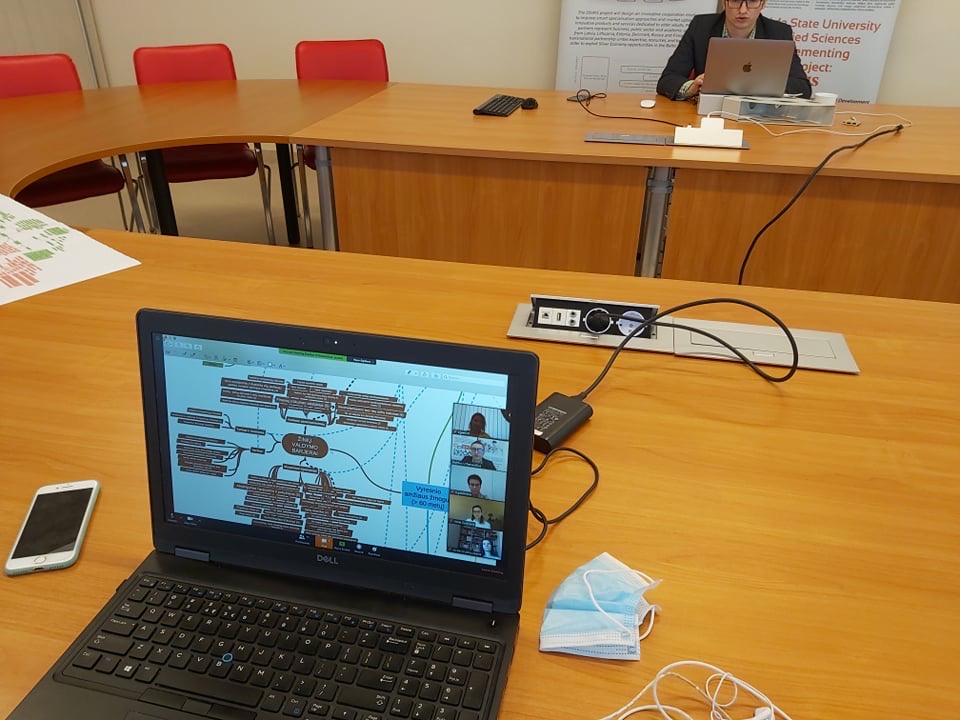
3rd Knowledge Management co-creation workshop in Klaipėda State University of Applied sciences
Klaipėda State University of Applied sciences organised 3rd Knowledge Management c0-creation workshop in Klaipėda, Lithuania on 26 May 2020. The aim of the 3rd co-creational workshop was to verify Knowledge Management, the draft Model. The visual representation and short description of the draft of KMM were presented during the event. The aim of the 3rd co-creational workshop was to verify Knowledge Management, the draft Model. The visual representation and short description of the draft of KMM were presented during the event. The event where Klaipeda State University of Applied Sciences, together with other representatives of government, science and business, continued to develop the knowledge management model for the Lithuanian health community and its adaptation to the open innovation ecosystem, took place under unusual conditions when the world and Lithuania were experiencing a pandemic crisis under the measures of social distancing. Nine workshop members from local authorities, seniors’ organizations and business participated by using ZOOM platform in this event. Working under challenging circumstances of social distance, however, was productive and concentrated allowing verifying draft model and gathering the necessary information and knowledge for further development of the model.
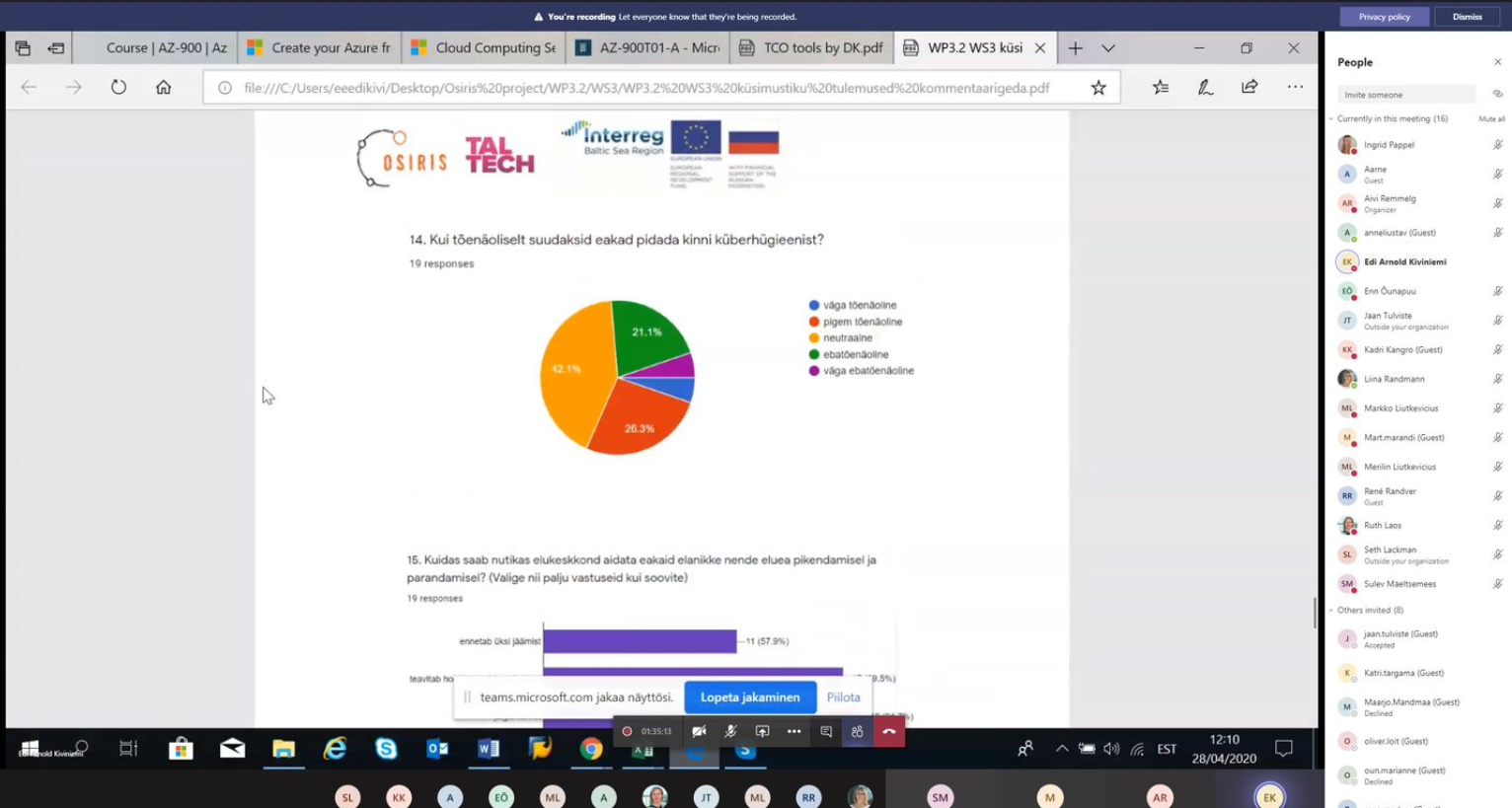
4th Knowledge Management co-creation workshop in Estonia
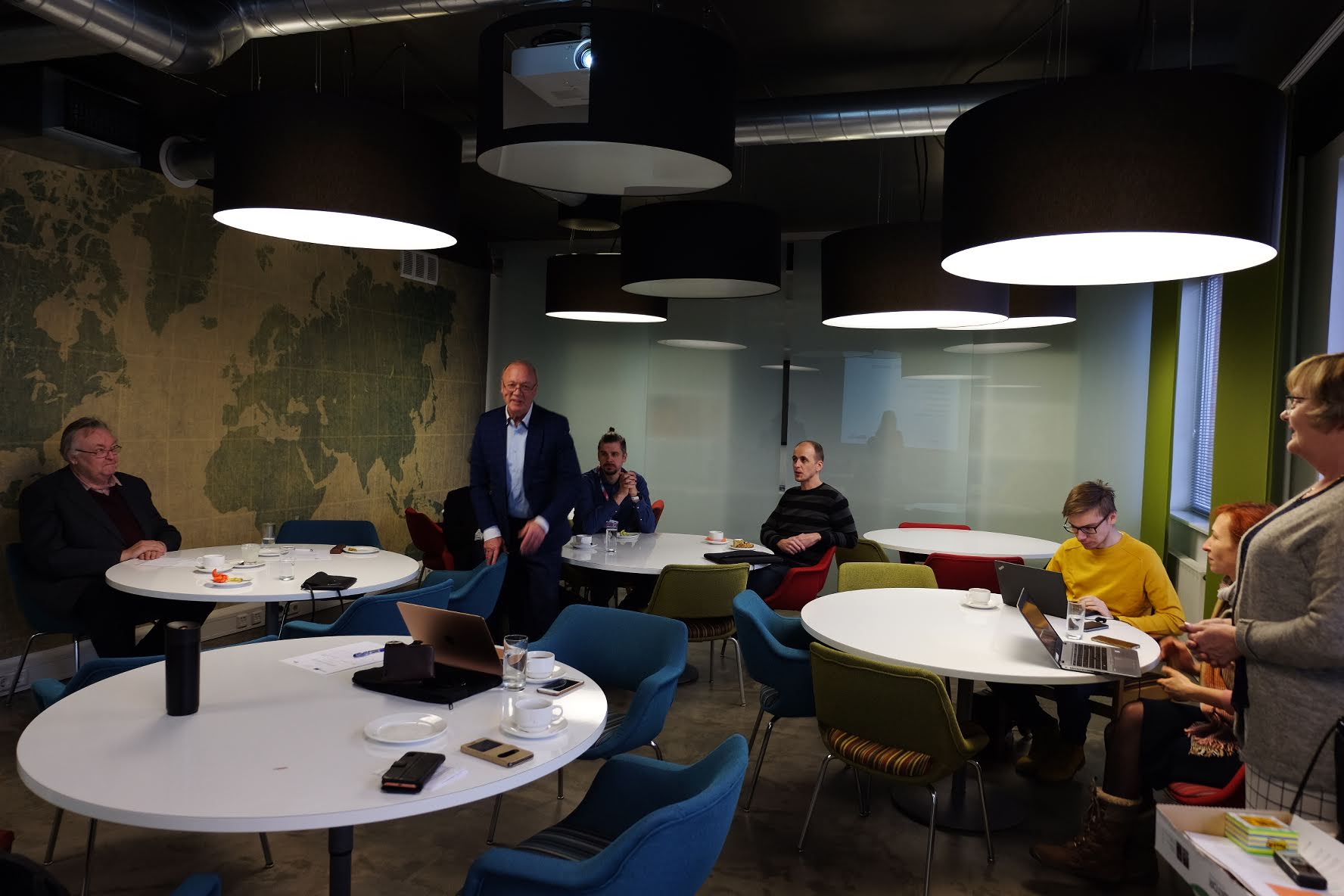
First workshop to start regional Knowledge Management Model in Tallin, Estonia
Taltech (PP8) organized the meeting in Tallinn, Estonia 29.01.2020 and it lasted around 3 hours with one lunch break in between. Aim of this meeting was to gather information through brainstorm about different problems that Estonia is facing in silver economy eco-system and what could be possible solutions to improve the overall situation. The 12 participants represented different views. We had one member from the ministry of social affairs, one member of Estonian Pensioners’ association, most of them represented academic views but because their field of research is so different it gave us good input. The workshop had good results- we worked in two groups and both of the groups had a very different approach to the questions. We used the post-it method so that through brainstorm we got around 40 different keywords and then representatives from both groups presented what they had discussed. Through that, we found out that there are 10 main questions that we need to look into, choose the most relevant ones and go on with them in the next workshop.
2nd Peer review seminar in St. Petersburg 13.11.2019
 The second part of Peer Review seminars will take place in St. Petersburg on the 13th of November. OSIRIS project partners will go thru the Silver Economy situation in Latvia and Russia. The business possibilities, user needs and strategical directions of development.
During the workshop part of the event, project partners will continue handling the three questions as in Vilnius with the the approach of main presenters, Russia and Latvia:
The second part of Peer Review seminars will take place in St. Petersburg on the 13th of November. OSIRIS project partners will go thru the Silver Economy situation in Latvia and Russia. The business possibilities, user needs and strategical directions of development.
During the workshop part of the event, project partners will continue handling the three questions as in Vilnius with the the approach of main presenters, Russia and Latvia:
- Models and platforms for joint knowledge management and knowledge transfer in the innovation process - how data and knowledge are managed by the government at the level of country/region
- Pilot programs for supporting innovation and smart specialization projects - new technologies, approached and methodologies
- Funding schemes and Financing mechanism for supporting innovation and smart specialization projects - possible funding scenarios for effective S3 implementation and schemes to combine funding and financing support for research and innovation

Transnational Peer Review Seminar III in Finland
The meeting was arranged by Riihimäki Business Development Co. (RTOY) and Häme University of Applied Sciences (Hamk) in Hämeenlinna on the 27 of November 2019. The focus of the seminar was the implementation of regional research and innovation strategies for smart specialization. In the preliminary speeches, it was mentioned how important it is to avoid project jargon that drives the target groups away. It is also extremely important to point out the credibility of the project and its efficiency for the stakeholders.
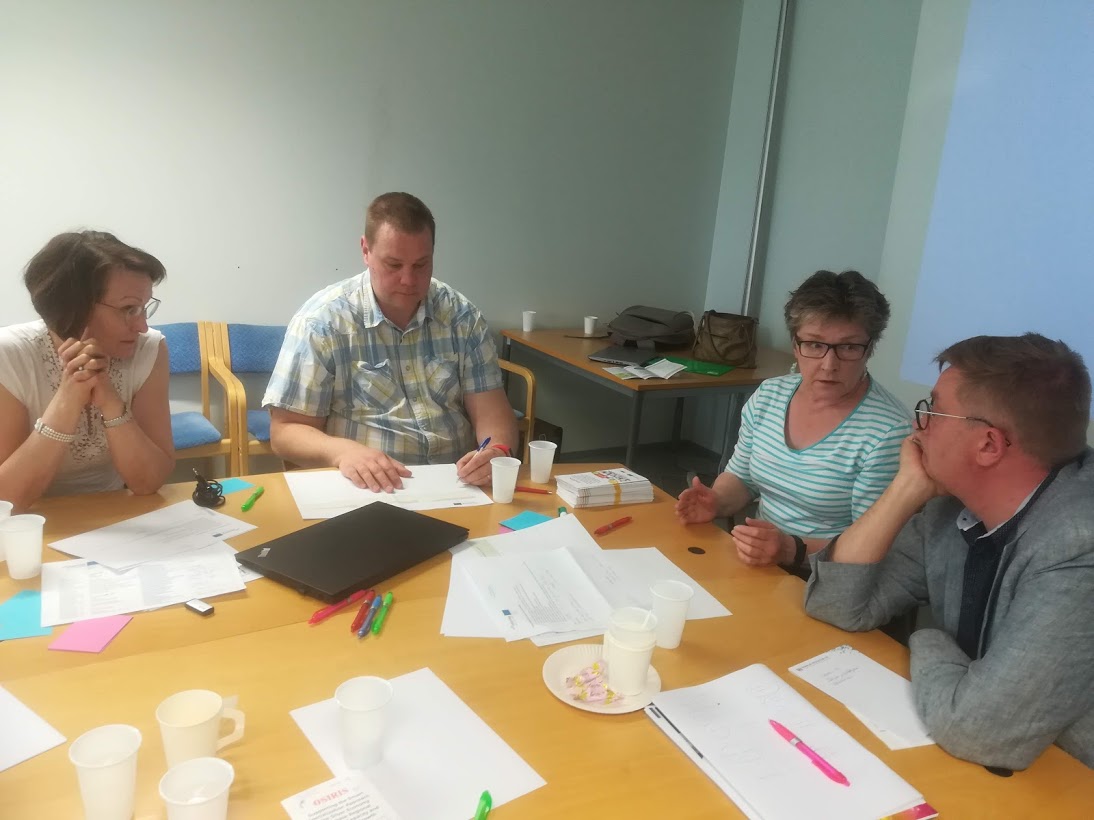
FOCUS GROUP WORKSHOP IN RIIHIMÄKI 4.6.2019
The workshop took place on the 4th of June 2019 in Riihimäki Business Development Co, Riihimäki, Finland. There were nearly 30 participants in the event. The objective of the Focus group workshop was the identification of silver economy knowledge-intensive areas for potential growth. The expert speakers represented the silver economy from as many viewpoints as possible. Investigational know-how involving smart technology, care and construction, and which reflected the future, was presented. Principal lecturer Katariina Välikangas of HAMK stated that too many decisions are nowadays made on the basis of care and that more thought should be put on the overall picture and the various needs of seniors. Currently, a wider overview of Finnish housing policy appears to be missing. To Välikangas, one bright spot is the return of the elderly citizen's councils; senior citizens need their own spokespeople to promote their interests! Architect SAFA Anne Ranta-Eskola of Arcare Oy stated that many things have to be considered during the planning phase of construction projects directed at seniors. These are functionality, efficiency, economy, energy efficiency, accessibility, a good life, the needs of the inhabitant and their loved ones, and good-quality working conditions for the staff. According to Regional Development Specialist Minna Takala of the Regional Council of Häme it is essential to combine various sectors, such as creative industries, construction and robotics, instead of only thinking about things in a silo-like fashion. Chairman of the Board Timo Liukko of Small Data Garden (and First Round Oy) stated that there was often a need for various devices and systems that could help with everyday life, but that a readiness to buy such things was another matter entirely. People are inventive, and there are lots of new ideas, but testing and piloting them is more challenging. It is important to discuss how the money is channelled, whether it is a commercial business model or something else. That is also why it is important to measure and calculate the benefits. The preliminary speeches inspired for further debate and the participants innovated a lot of new senior-related business needs. The participants agreed that many seniors have strong prejudices about new technology. Such concerns could be alleviated by e.g. allowing seniors to try out the technology in controlled conditions in health clinics, libraries or other suitable facilities.
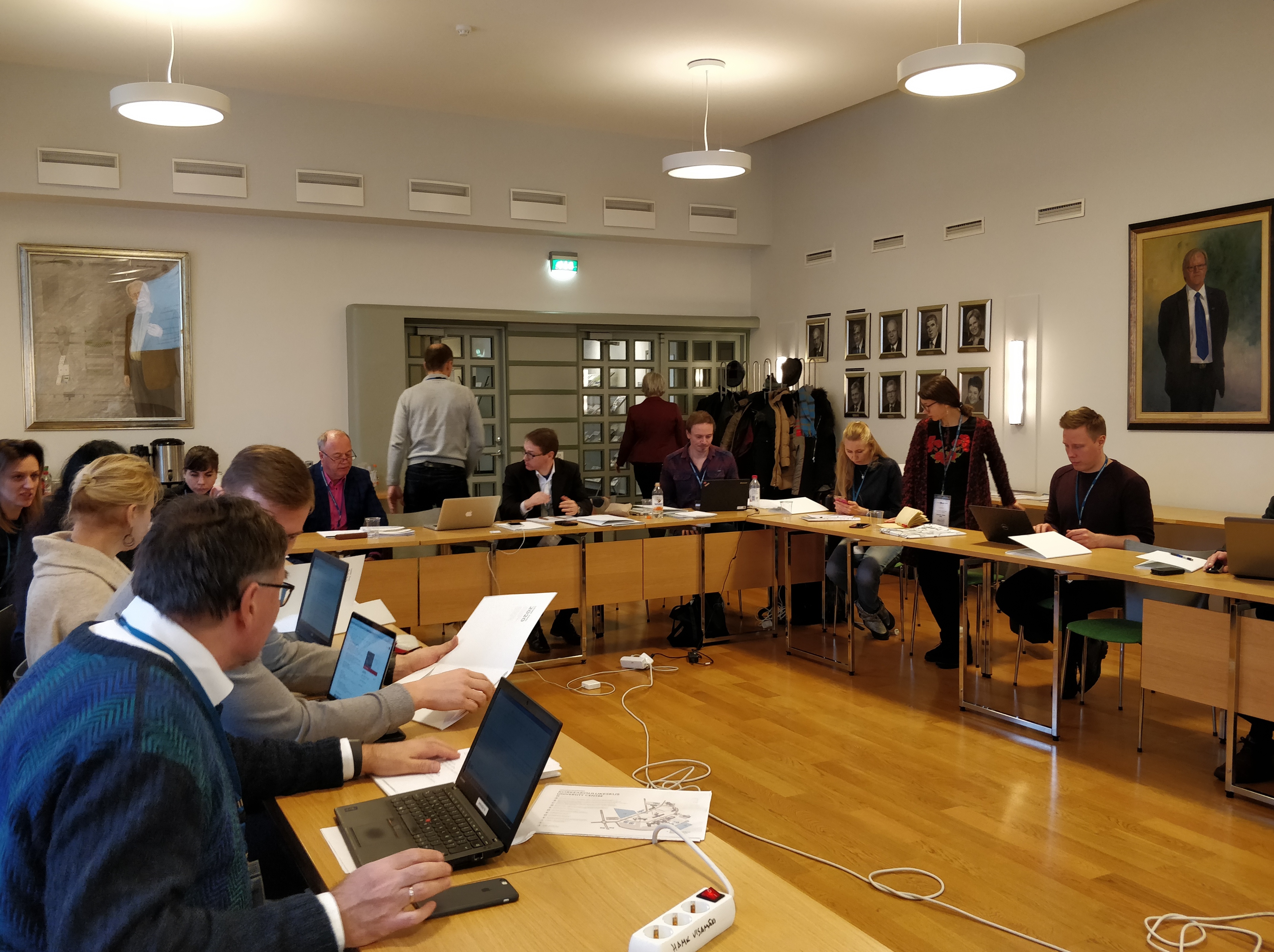
OSIRIS PARTNERS MET TO START PROJECT ACTIVITIES
OSIRIS project partners held their kick-off meeting on 30 January 2019 in Hämeenlinna, Finland. All 13 partner organizations from the six Baltic region states gathered to meet each other and the representative of the Interreg BSR office, and to agree the common goals of the project. The two-day program included lectures about the Interreg financing mechanism, best practices in reporting and an overview of the project and also included workshops on the first stages.
